
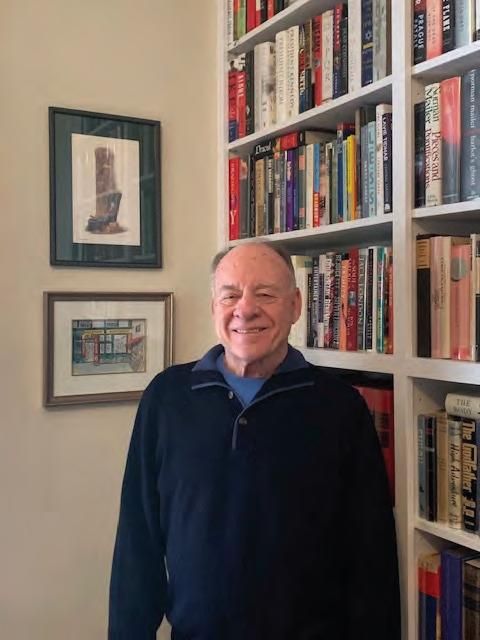
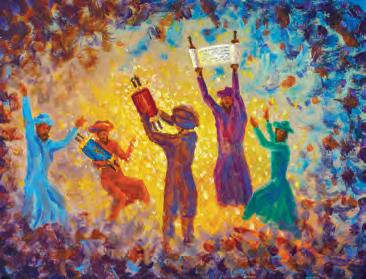




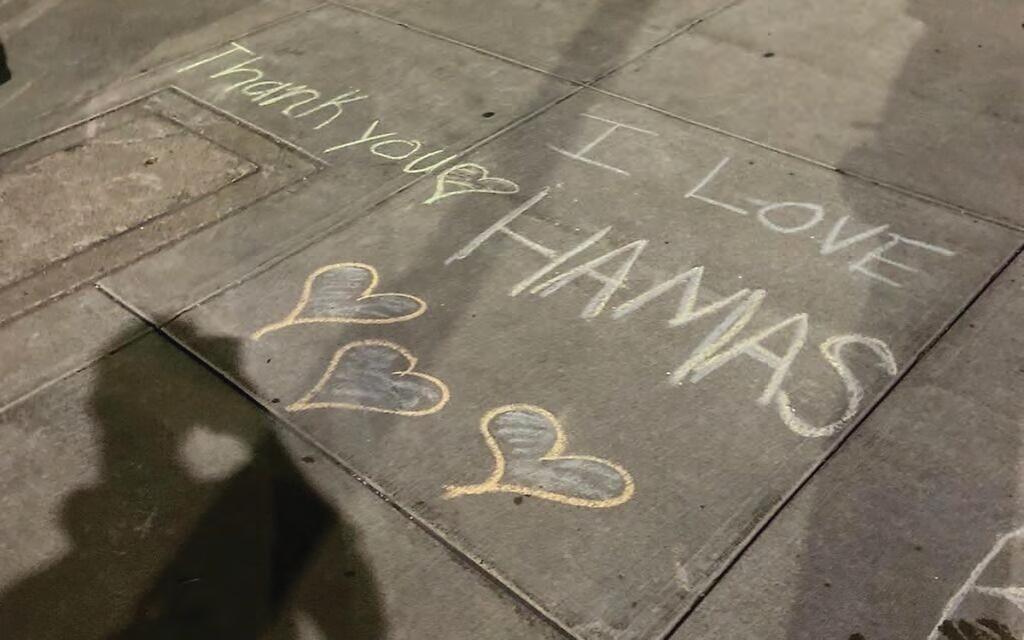
By David Rullo | Senior Sta Writer
Pennsylvania continues to see a rise in antisemitic incidents, according to a new report by the Anti-Defamation League.
“Hate in the Keystone State: Extremism and Antisemitism in America” notes that 465 antisemitic incidents were reported in Pennsylvania last year, compared to 394 incidents in 2023, an 18% increase. Another 76 were reported in the state through June 2025.
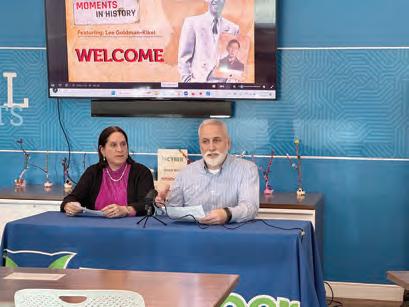
Nationwide, the ADL documented 9,354 antisemitic acts of assault, vandalism and harassment, a 5% increase from 2023 and a 344% increase from 2019. Pennsylvania’s number of antisemitic incidents was the fourth highest in the country, and included activity from both far-left and far-right groups, extremist plots and murders, and white supremacist propaganda and events.
A closer look at Pennsylvania’s numbers reveals that in 2024, instances of assault increased by 140%, vandalism increased by 35% and harassment grew by 12%.


Pittsburgh has seen hundreds of incidents in the last two years, including anti-Israel and antisemitic graffiti painted on private property as well as at the Jewish Federation of Greater Pittsburgh and Chabad of Squirrel Hill; the distribution of white supremacist literature; anti-Israel rallies; and individuals attempting to join both Hamas and Hezbollah, among other activities.
Local groups, including Students for Justice in Palestine at Pitt, are identified in the ADL report as organizing anti-Israel events where antisemitic activity often
occurs. The Pittsburgh Palestine Coalition and Steel City Anti-Fascist League are mentioned for having a prominent role in organizing activities and promoting antisemitic, pro-terror content and messaging.
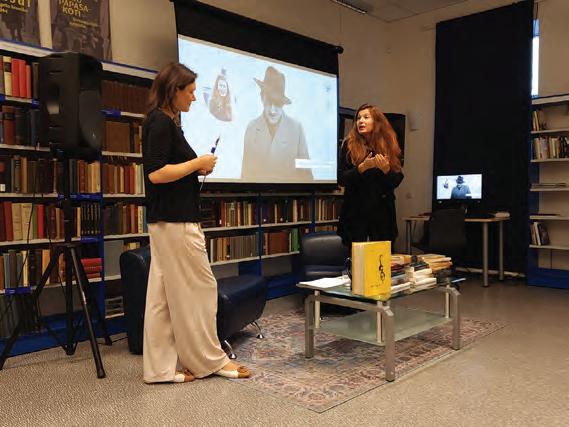
The Goyim Defense League and White Lives Matter have been active in Pennsylvania, according to the report. The former is allegedly responsible for several instances of distributing antisemitic flyers in Pittsburgh.
Several people have faced criminal charges stemming from antisemitic activity here, including Jeremy Brokaw, of Ohio, who was found guilty of driving to Pittsburgh and committing more than 160 acts of littering by throwing literature with antisemitic messages from his vehicle. He was fined more than $48,000.
Brokaw is among those in the white supremacist community who find support among a network of similarly-minded groups and individuals. His Jewish lawyer from Pittsburgh represented defendants from the Charlottesville Unite the Right rally. Brokaw created a campaign on a crowdsourcing site that has attracted several supporters, some leaving antisemitic comments when making their donations, including Goyim Defense League leader Jon Minadeo II who, according to the ADL, wrote, “Drop the charges you filthy heebs.”
“When we talk about anti-Israel incidents, we’re not talking about protected First Amendment speech,” explained Kelly Fishman, ADL’s regional director serving Ohio, Kentucky, West Virginia and western
VILNIUS, LITHUANIA — Standing in the back of the Choral Synagogue in Vilnius, Lithuania — an early 20thcentury structure and the city’s only extant synagogue — Cantor Shmuel Yatom articulated a challenge for observant Jews in Vilnius: “There’s no kosher bread here.”
Historically, such a statement would have been inconceivable; for generations Vilnius was a colossus of Jewish culture.
Known as Yerusholayim d’Lite (Jerusalem of Lithuania), there were 80,000 Jews and more than 100 synagogues in Vilnius before World War II. One place of worship — the Great Synagogue of Vilnius, a nearly 300-year-old building desecrated by the Nazis and later demolished by the Soviets — seated 5,000 people. Vilnius’ Strashun Library (also plundered by the Nazis) once contained 40,000 prized Jewish writings. The Vilna Gaon, an 18th-century intellectual titan whose rabbinic glosses established Ashkenazic norms, lived and wrote in Vilnius. And, texts issued by Romm Widow and Brothers Printing House, a 19th-century Vilnius-based Jewish publisher, became the standard for students and scholars worldwide.
Over two nights, before and after evening services, Yatom, 60, spoke with this reporter about Jewish life in Vilnius.
Of the city’s 80,000 pre-war Jews, nearly 90% were murdered in the Holocaust. About 2,000

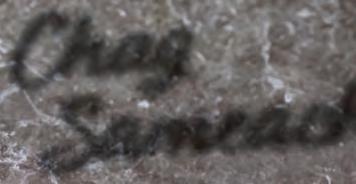

By David Rullo | Senior Staff Writer
The Carnegie Library of Pittsburgh has a new book about spelunking, thanks to Marshall Cohen and his recent gift of more than 3,500 books.
The donation brings things full circle for Cohen, who recalled that a librarian at the Liberty School in Shadyside, where he grew up, once gave him a book about cave exploration.
“I remember thinking, ‘That’s interesting. What else do you have?’” Cohen said. “I never became a spelunker, but I did become a reader.”
That encounter began a lifetime of visiting bookstores, enjoying writers’ lectures, meeting many authors and attending — and creating — book festivals.
Cohen’s explorations led to spending time in famed bookstores like Politics and Prose in Washington, D.C., and frequenting festivals in several cities, including New York, Boston and Miami.
He created the Greater Pittsburgh Book Festival in 2022, meant to celebrate and foster a love of reading across the community. The Carnegie Library became the festival’s presenting organization, rebranding it as the PGH Book Fest in 2025. It is held on the grounds of the library’s main campus in Oakland and has become an important signature cultural event in the region.
“I’m a reader,” Cohen told the Chronicle when he launched Pittsburgh’s book festival. “I don’t publish. I don’t book bind. I read.” Reading, combined with his travels,
by
Salman Rushdie, Michael Connelly and Michael Chabon, who graduated from the Cohen recently moved to Maine from the Steel City and was trying to decide -

philes around the world.
Included in the collection he recently donated to the Carnegie Library of Pittsburgh are signed first editions by Truman Capote (“One Christmas,” “In Cold Blood”), Arthur Miller (“Salesman in Beijing”), Kurt Vonnegut (“Player Piano”) and Winston Churchill (“Collected Works).
Other notable works include a complete first edition of Churchill’s “The Second World War” and a first edition of Mario Puzo’s “The Godfather,” as well as works
“They needed a permanent home, not my Not surprisingly, the idea of donating his collection to a library came from another book.
“I was reading Doris Kearns Goodwin’s last book about her life with Richard Goodwin,” he said. “It described their lives and that they donated their library to the Concord Free Public Library, and that’s when it clicked. I thought, that is the answer.”
Cohen’s decision to donate the books to the Carnegie Library was based on his relationship with library President & Director

SUBSCRIPTIONS subscriptions@pittsburghjewishchronicle.org 412-687-1000, ext. 2
TO ADVERTISE advertising@pittsburghjewishchronicle.org 412-687-1000, ext. 1
EDITORIAL DEPARTMENT
Email: newsdesk@pittsburghjewishchronicle.org
BOARD OF TRUSTEES
Evan H. Stein, Chair
Evan Indianer, Vice Chair
Derek Smith, Treasurer
Gayle R. Kraut, Secretary
Gail Childs, Dan Droz, Malke Steinfeld Frank, Seth Glick, Tammy Hepps, Judith Kanal, Cátia Kossovsky, Charles Saul
GENERAL COUNSEL
Stuart R. Kaplan, Esq.
Jim Busis, CEO and Publisher 412-228-4690 jbusis@pittsburghjewishchronicle.org
EDITORIAL
Toby Tabachnick, Editor 412-228-4577 ttabachnick@pittsburghjewishchronicle.org
Adam Reinherz, Senior Staff Writer 412-687-1000 areinherz@pittsburghjewishchronicle.org
David Rullo, Senior Staff Writer 412-687-1000 drullo@pittsburghjewishchronicle.org
ADVERTISING
PRODUCTION
Jeni Mann Tough
Production Manager
Carl Weigel
Art/Production Coordinator
Subscriptions subscriptions@pittsburghjewishchronicle.org 412-687-1000, ext. 2
Published every Friday by the Pittsburgh Jewish Publication and Education Foundation 5915 Beacon St., 5th Floor Pittsburgh, PA 15217
Phone: 412-687-1000
POSTMASTER: Send address change to PITTSBURGH JEWISH CHRONICLE, 5915 BEACON ST., 5TH FLOOR PITTSBURGH, PA 15217
(PERIODICAL RATE POSTAGE PAID AT PITTSBURGH, PA AND AT ADDITIONAL MAILING OFFICES)
USPS 582-740
Andrew Medlar and the work the library has done to continue the book festival he created. The pair developed a relationship through their work with the PGH Book Fest. The library, Medlar said, is “deeply grateful” to Cohen for “entrusting us with this incredible collection.”
“It’s a rare and inspiring gift,” he said, “one that not only enriches our literary community today, but will leave a lasting legacy for future generations of readers, researchers and book lovers in Pittsburgh.”
It is Cohen’s hope that people will continue to fall in love with books. Similar to the book festival he started, he said, the library performs an important service of connecting people to literature.
“Helping the library is important because it’s free, like the festival,” he said. “You can walk into the festival, meet and talk to an author and then go to the library and get the book. All of that is very important, especially for families with kids.”
Cohen made his gift in September during Love Your Library month, a time when the community celebrates the transformative role libraries play in people’s lives.
It is a role of which Cohen is acutely aware and something to which he’s glad to contribute.
“I’m proud to share this collection with a city and library system that nurtured my own love of reading from a young age,” he said. “In these times especially, reading and books are more critical than ever, and libraries are the core of that. We truly need to make America read again.” PJC
David Rullo can be reached at drullo@ pittsburghjewishchronicle.org.
Amy Weiss, Account Executive (412) 613-0697 aweiss@pittsburghjewishchronicle.org 5915 Beacon St., 5th Floor Pittsburgh, PA 15217 Main phone number: 412-687-1000 Subscriptions: 412-687-1000, ext. 2
Manuscripts, letters, documents and photographs sent to the Pittsburgh Jewish Chronicle become the property of this publication, which is not responsible for the return or loss of such items.
The Pittsburgh Jewish Chronicle does not endorse the goods or services advertised or covered in its pages and makes no representation to the kashrut of food products and services in said advertising or articles. The publisher is not liable for damages if, for any reason whatsoever, he fails to publish an advertisement or for any error in an advertisement. Acceptance of advertisers and of ad copy is subject to the publisher’s approval. The Pittsburgh Jewish Chronicle is not responsible if ads violate applicable laws and the advertiser will indemnify, hold harmless and defend the Pittsburgh Jewish Chronicle from all claims made by governmental agencies and consumers for any reason based on ads appearing in the Pittsburgh Jewish Chronicle


Beacon Coalition is a non-partisan organization standing up for the rights and wellbeing of Jews in the United States.
Beacon Coalition vets candidates for political office in three areas: combatting antisemitism, upholding democracy, and championing pluralism.
These evaluations are based on the candidates’ voting records, public statements, and interactions with the Jewish community.
Read more about these and other candidates on our website.


held by Bethany Hallam (D); this special election will decide the minority-party seat.
Mike Embrescia (R) - Incumbent
Allegheny County Council — District 3
Lissa Geiger Shulman (D)
endorsement of Governor Josh
Mike Embrescia is the appointed Allegheny County AtLarge Councilman and is Chief Development Officer at Carnegie Robotics. Embrescia used his social media to address the 2024 assault outside the Capital Jewish Museum, writing, “Antisemitism is real. Racism is real.” Embrescia has shown willingness to challenge members of his own party, citing his endorsement of Governor Josh Shapiro over Doug Mastriano, whom he described as “divisive.” In response to Beacon Coalition’s questions about BDS, Embrescia wrote “The BDS movement is a blatant corruption of political, economic, ethical, and humanitarian considerations.”
Alex Rose (Labor)
Alex Rose is a political activist and volunteer. He has publicly acknowledged Jewish holidays and spoken out against antisemitic incidents. Rose is running under the Labor party and has worked on the campaigns of Democrats. In a court hearing, when asked if he was a loyal Democrat, he described himself instead as “a loyal activist.” Rose did not return the Beacon questionnaire.
Mayor of Pittsburgh
Corey O’Connor (D)
Corey O’Connor has served as Allegheny County Controller since 2022 and as a city councilman from 2012-2022. He has attended Jewish community events regularly throughout his time as a public official. He spoke out against the local BDS attempts. He told Beacon Coalition, “My focus is on good governance that delivers real results for Pittsburgh. I believe in leadership that unites rather than divides.” On antisemitism, O’Connor said “Our leaders should have been more proactive in addressing this crisis, publicly acknowledging the scope of the problem, standing unequivocally against antisemitism, and working directly with the Jewish community to implement real solutions.”
Tony Moreno (R)
Tony Moreno is a retired Pittsburgh police detective. He has not held prior elected office. Moreno has criticized city officials over continued city-funded payments to a former city employee who was charged with ethnic intimidation for antisemitic harassment. Moreno did not return the Beacon Coalition questionnaire.
Beacon recommends voting YES on all five statewide Judicial retention questions:
Supreme Court: Christine Donohue, evin
Dougherty, David echt
Superior Court: Alice Beck Dubow
Common ea t Court: Michael ojcik
Lissa Geiger Shulman is a policy consultant who has not held prior office. In her response to a Beacon Coalition question about the rise in antisemitism in Pittsburgh, Geiger Shulman noted, “Unfortunately, the actions of some elected leaders here in our region have failed to condemn antisemitic acts and knowingly or unknowingly suppressed the majority of Jewish voices.” In response to a question about her understanding of ionism, she said, “I believe that Jews have a right to self-determination and statehood in their ancestral home, Israel. I do not believe that Jews should be asked to condemn ionism or the actions of the Israeli government or its citizens in order to be allies in the broader fight for democracy, civil rights, and social justice.” She told Beacon Coalition that she would have voted against the 2024 ceasefire resolution that came before County Council. Geiger Shulman has participated in Jewish community events in ox Chapel.
Christopher Lochner (R)
Christopher Lochner served as Edgewood Borough Manager and as Hampton Township Municipal Manager for nearly four decades. He opposes BDS, and, in response to a Beacon Coalition question about balancing free speech protections while addressing harassment or intimidation, Lochner stated, “Protecting free speech is one thing, but not hate speech. Protecting free speech while condoning and participating in violent behavior as part of that speech is not the same thing in my opinion, and those who engage in violent or intimidating behavior should be held accountable for it.”
Michelle Naccarati-Chapkis (D) - Incumbent
Michelle accarati-Chapkis has represented District on Allegheny County Council since 2021. She abstained from voting on the 2024 ceasefire resolution. Her remarks during the debate emphasized concern for both Israeli and Palestinian lives, as well as local Jews and Muslims, and she acknowledged the divisiveness of the issue. She has attended Jewish community events, made public statements recognizing Jewish holidays and denounced antisemitic incidents in Pittsburgh. Her voting record indicates a rejection of political extremism.
Michael Dell (R)
Michael Dell has served on Plum Borough council and is a CPA. Limited information is available about Dell’s positions or past interaction with the Jewish community. Dell did not return the Beacon Coalition questionnaire.
Pittsburgh City Council — District 8
Erika Strassburger (D) - Incumbent (unopposed)
Erika Strassburger has served on Pittsburgh City Council since 201 and was the primary sponsor of two City Ordinances to ensure that Pittsburgh rejects BDS-driven bias, upholds anti-discrimination protections, and prevents special interest groups from misusing the Home Rule Charter. Strassburger has consistently engaged with the Jewish community and opposed illiberal political trends.

By Tim Miller | Special to the Chronicle
As far as festivals go, Simchat Torah is fairly new — that is, it is around 1,400 years old. It was only during the period of
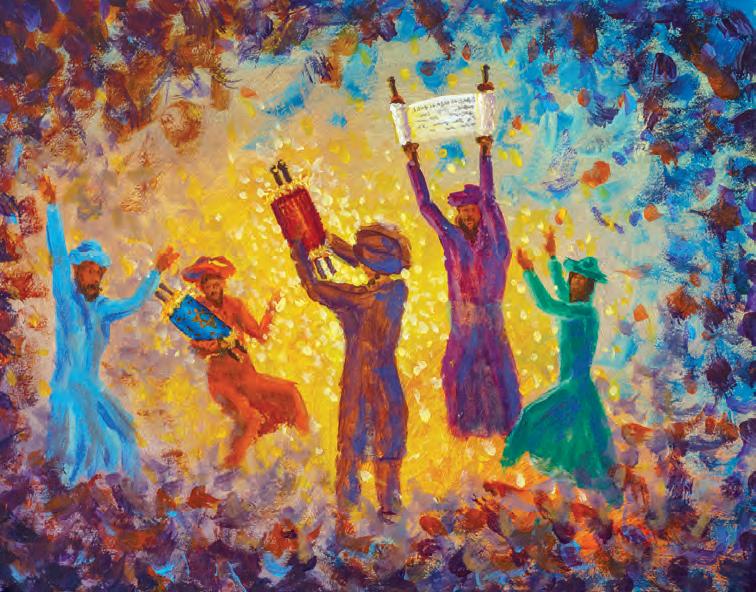
body of Moses was brought to the synagogue there. The prophet’s body was immense, almost the size of a giant, and it required many people to carry it in and place it on a table: “But as soon as the body of Moses was stretched out on the long table, it became transformed into a scroll of the Torah that was opened to its full length, like a long letter, from the first words of Genesis to

NOVEMBER
POLLS OPEN FROM 7:00 A.M. TO 8:00 P.M.
LAST DAY TO REGISTER : MON., OCT. 20
LAST DAY TO REQUEST A MAIL-IN or ABSENTEE BALLOT: TUES., LAST DAY TO RETURN YOUR COMPLETED BALLOT: TUES., NOV. 4,


DAY TO RETURN YOUR COMPLETED BALLOT: TUES., NOV.
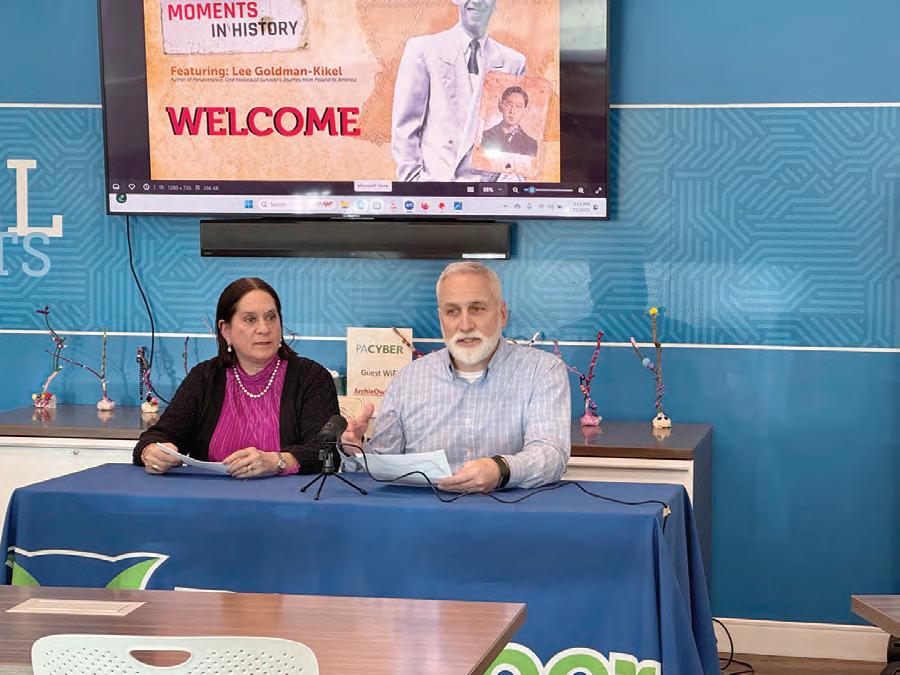
The preservation of memories is resulting in new ones. The Pennsylvania Cyber Charter School received a Mid-Atlantic Regional Emmy® Award for “Moments in History: Melvin Goldman” in the Education/Schools – Long Form Content category. The 18-minute film captures the story of Holocaust survivor Melvin Goldman, who after surviving Nazi concentration camps created a life in Pittsburgh.
again’ is not just a phrase but a commitment to humanity.”
“Moments in History: Melvin Goldman” is part of a PA Cyber project to introduce students and viewers to “first-hand accounts of chapters in time.” Released on the school’s YouTube channel, the “Moments in History” series has received three consecutive nominations for Regional Emmys.
“PA Cyber stands out with its ‘Moments in History’ series, allowing students across the state to watch historical moments,” Scot
–BRIAN HAYDEN
As explained in the film, Goldman wanted his story to be preserved in a book. Following his death, his daughter, Lee Goldman Kikel, honored her father’s wishes and penned “Perseverance: One Holocaust Survivor’s Journey from Poland to America.” The 2019 book was later adapted into a play and in 2023 performed at New Hazlett Theater Center for Performing Arts.
PA Cyber paired Goldman’s cassette recordings, made in the 1970s about his experiences in the war, with historic footage and recent interviews of Goldman Kikel. Released under the school’s “Moments in History” series, the film was shown to students and families, and followed with a question and answer session, for a Holocaust Remembrance Day event on Jan. 27, 2025. Goldman Kikel called her father “tolerant and accepting of others,” and said at the time that “if he can live like that, others can too.”
The educational value of learning Goldman’s story is paramount, according to Whitney Conjeski, a high school history

Advice. Beyond investing.
You have a vision for how you want to live. We ask the right questions to uncover what’s most important and address every aspect of your financial life, at every stage of your life. It’s what we call: Advice. Beyond investing.
Lee Oleinick
Financial Advisor
Managing Director–Wealth Management lee.oleinick@ubs.com
Jack Greenberg, CFP®
Financial Advisor Vice President–Wealth Management jack.greenberg@ubs.com
Andrew Oleinick, CFP® Financial Advisor andrew.oleinick@ubs.com
Inc. 600 Grant Street Suite 4650 Pittsburgh, PA 15219 advisors.ubs.com/walnut
Christopher Butsko
Financial Advisor
Senior Vice President–Wealth Management christopher.butsko@ubs.com
Brandon Pruss
Financial Advisor Vice President–Wealth Management brandon.pruss@ubs.com
Rutledge, PA Cyber’s director of marketing and communications, said. “Our students also have the opportunity to engage in a live Q&A with the featured individual during screenings at our regional offices and through Zoom. Having this capability enriches the learning process.”
Winning the award, Rutledge added, is “truly a testament to the quality PA Cyber brings to furthering education, not only to our students but to anyone who wants to learn.”
“Earning this award is not only a recognition of our school’s creative work, but also a reflection of our responsibility as educators,” echoed Brian Hayden, PA Cyber’s CEO, in a prepared statement. “Through this film, we are ensuring that anyone can understand the lessons of resilience and hope that emerge from even the darkest chapters of history.” PJC
Adam Reinherz can be reached at areinherz@pittsburghjewishchronicle.org.



















Submit calendar items on the Chronicle’s website, pittsburghjewishchronicle.org. Submissions also will be included in print. Events will run in the print edition beginning one month prior to the date as space allows. The deadline for submissions is Friday, noon.
FRIDAY, OCT. 10
Bring a vegan dish to Temple David on Erev Shabbat Chol HaMoed for the Ninth Annual Vegan Sukkot Potluck in the sukkah and social hall. Services follow at 7:30 p.m. followed by a plant-based oneg Shabbat. This year we are honored to welcome speaker Michael Gribov, head of movement building at Jewish Vegan Life. Questions? Need recipe ideas? Contact Stan Beck at stanb@templedavid.org. Free. 6 p.m. 4415 Northern Pike.
SUNDAY, OCT. 12
Join Chabad of Squirrel Hill for a family Sukkah party Enjoy a pizza dinner, music and crafts. 4:30 p.m. 1700 Beechwood Blvd. chabadpgh.com/sukkahparty.
Join Pittsburgh’s Jewish community for an Oct. 7 commemoration. Whether you come to mourn, to learn or to stand in solidarity, your presence matters. Security will be on site. 6:30 p.m. JCC Levinson Hall. For more information and to register, visit jewishpgh. org/event/october-7-commemoration-2.
SUNDAYS, OCT. 12–DEC. 28
Join Chabad of Squirrel Hill for its Men’s Tefillin Club. Services and tefillin are followed by a delicious breakfast and engaging discussions on current events. 8:30 a.m. 1700 Beechwood Blvd. chabadpgh.com.
Join a lay-led online Parashah study group to discuss the weekly Torah portion. No Hebrew knowledge needed. The goal is to build community while deepening understanding of the text. 8:30 p.m. For more information, visit bethshalompgh.org/ online-parashah.
MONDAYS, OCT. 13-DEC. 29
Join Congregation Beth Shalom for a weekly Talmud study. 9:15 a.m. For more information, visit bethshalompgh.org.
Join Temple Sinai for an evening of mahjong every Monday (except holidays). Whether you are just starting out or have years of experience, you are sure to enjoy the camaraderie and good times as you make new friends or cherish moments with longterm pals. All are welcome. Winners will be awarded Giant Eagle gift cards. All players should have their own mahjong cards. Contact Susan Cohen at susan_k_cohen@yahoo.com if you have questions. $5. templesinaipgh.org.
WEDNESDAYS, OCT. 15–DEC. 31
Temple Sinai’s Rabbi Daniel Fellman presents a weekly Parshat/Torah portion class on site and online. Call 412-421-9715 for more information and the Zoom link.
Bring the parashah alive and make it personally relevant and meaningful with Rabbi Mark Goodman in this weekly Parashah Discussion: Life & Text. 12:15 p.m. For more information, visit bethshalompgh.org/life-text.
Join Chabad of the South Hills for Baby Loves Shabbat, music and movement for ages 0 to 3. Challah making and Shabbat songs. 3:45 p.m. 1701 Bower Hill Road. chabadsh.com.
THURSDAY, OCT. 16
Chabad of Squirrel Hill presents Loaves of Love Women are invited to bake challah and sing songs of prayer with Sue Berman Kress and Julie Harris. $15. 7 p.m. 1700 Beechwood Blvd. chabadphg.com/lol.
SUNDAY, OCT. 19
Join the Rauh Jewish Archives and Classrooms Without Borders for a bus tour of Jewish heritage

in the Monongahela Valley. Meet at Rodef Shalom before continuing to Charleroi, Brownsville and Donora. Lunch will be on your own at Brownsville. The tour will be facilitated by Eric Lidji, director of the Rauh Jewish Archives, and Kate Lukaszewicz of Classrooms Without Borders. $50. 8:30 a.m. cwbpgh. org/event/bustour.
The Pittsburgh Jewish Chronicle invites you to join the Chronicle Book Club on Zoom for its discussion of “Sons and Daughters” by Chaim Grade. 1 p.m. Email drullo@pittsburghjewishchronicle.org for registration link.
The Tree of Life presents “Antisemitism, an American Tradition.” Join New York Times columnist and 2013 Pulitzer Prize winner Bret Stephens in conversation with author and historian Pamela Nadell about her new book, which investigates the dark and long history of antisemitism in American life. Together, they will explore how understanding the past can help us stand up and fight back against hate. $0 (virtual); $125 (VIP). 4 p.m. Carnegie Mellon University, Jared L. Cohon University Center, McConomy Auditorium, 5032 Forbes Ave. Register at thetreeoflife.org.
TUESDAY, OCT. 21
Hannah Arendt and the Jewish Question,” presented by Michael Moshe Milch. Free. 6:30 p.m. Carnegie Library of Pittsburgh, Squirrel Hill branch. No preregistration required.
WEDNESDAY, OCT. 22
Join JFCS for Lunch & Learn: Supportive Parenting for Anxious Childhood Emotions (SPACE), designed to empower parents and guardians with skills, tools and confidence to support children with anxiety. Session is open to parents/guardians of school age children aged 7-18 still living in the home with a recognized anxiety disorder. Free.




1 p.m. Virtual through Zoom, link provided with registration. jfcspgh.org/event/lunch-learn-supportiveparenting-for-anxious-child.
WEDNESDAY, OCT. 29
The Holocaust Center of Pittsburgh presents “Voices from the Shadows — LGBTQ+ Experiences During the Nazi Era.” Eric Marcus introduces Making Gay History’s podcast series on the experiences of LGBTQ+ people during the rise of the Nazi regime, WWII and the Holocaust. Drawing on extensive research conducted for this first-of-its-kind audio documentary, Marcus shares archival clips during his presentation that brings this painful, often hidden history to life through the voices of the people who lived it. 6 p.m. Rodef Shalom Congregation, 4905 Fifth Ave. hcofpgh.org/event/save-the-datevoices-from-the-shadows-lgbtq-experiences-duringthe-nazi-era.
THURSDAYS, NOV. 6, JAN. 15, MARCH 12, APRIL 30, JUNE 25
In the ever-evolving landscape of legal practice, understanding the interplay between faith and governance is crucial for lawyers. Join Rabbi Danny Schi for an engaging CLE series that explores many intriguing questions. Individual classes: $45 with credit/$40 without credit. 8:30 a.m. Virtual. For a complete list of class dates and subjects visit, Jewishpgh.org/event.
WEDNESDAYS, NOV. 5-DEC. 10
Join Chabad of the South Hills for a new JLI course, The Kabbalah of Meaning,” exploring Jewish wisdom for finding the purpose that connects parts of life. No previous Jewish learning required. Online or in person. This course will satisfy the continuing education requirements of physicians, healthcare professionals, psychologists, social workers, LMFTs and LMHC/LPCs. 7:30 p.m. chabadsh.com. PJC





Bari Weiss appointed editor-in chief of CBS News
Jewish journalist Bari Weiss, who grew up in Pittsburgh, has taken the helm of CBS News, in a major changing of the guard at one of the leading U.S. news organizations, The Times of Israel reported.
In her position, she will oversee leading programs like “60 Minutes” and “Sunday Morning,” and play a role in “shaping how millions of Americans read, listen, watch, and, most importantly, understand the news in the 21st century,” Weiss said in a newsletter to subscribers of The Free Press, the news outlet she launched in 2022.
Weiss will remain CEO and editor-in-chief of The Free Press, which is joining Paramount, the parent company of CBS. The Free Press will remain independent, she said. Paramount had acquired The Free Press for roughly $150 million in cash and stock, according to media reports.
Weiss, a prominent critic of the far left, has spent stints in Israel and wrote a 2019 book about combating antisemitism.
She made a high-profile exit from The New York Times in 2020, saying she had been subjected to bullying from colleagues who had called her a “Nazi and a racist” and complained about her coverage of Jews. Before her role at the Times, Weiss worked at The Wall Street Journal. She has also worked for the Israeli daily Haaretz and the
American Jewish newspaper the Forward, and held a senior editing role at the online Jewish publication Tablet Magazine.
Americans now sympathize more with Palestinians than Israelis, poll finds
For the first time, more American voters say they sympathize with Palestinians than with Israelis, according to a new poll from The New York Times and Siena University, JTA reported.
The poll adds yet another data point to a growing pile showing a sharp drop in sympathy for Israelis since Hamas’ Oct. 7, 2023, attack. In the immediate aftermath, the same poll found 47% of Americans siding with Israel. In the new poll released last week, 35% of registered American voters said they sympathized more with Palestinians compared to 34% with Israel.
While younger voters are least sympathetic to the Israelis, the biggest change over the last two years, the survey found, was among older Democrats who are white and college-educated.
In addition to the slim preference for the Palestinians, the poll demonstrated a significant waning in support for Israel among Americans during the nearly two-year war in Gaza.
Additionally, 58% of respondents said Israel should halt its military campaign in Gaza to prevent civilian casualties, even if the 20 living Israeli hostages have not yet been freed.
A similar share said the offensive should end even if Hamas has not been completely defeated.
The poll also found that 40% of voters believe that Israel is intentionally killing Palestinian
Oct. 13, 2011 — La Scala hires Barenboim
civilians, and 62% believe Israel is not taking enough precautions to avoid civilian casualties.
The survey of 1,313 registered voters nationwide was taken Sept. 22 to 27, following reports of starvation in Gaza and as Israeli military’s widened its offensive — and before Israel accepted President Donald Trump’s proposal to end the Gaza war.
Italy poll: 15% say attacks on Jews ‘justifiable’
About 15% of Italians believe that physical assaults on Jewish people are “entirely or fairly justifiable,” according to a new survey released last week, amid ongoing protests against Israel’s nearly two-year-old war with Hamas in Gaza, JNS reported.
The SWG poll, conducted between Sept. 24-26 among 800 adults, also found that 18% consider antisemitic graffiti acceptable, while around 20% said it was reasonable to attack pro-Israel professors and for businesses to refuse Israeli customers.
Reuters reported that the findings come as Italian Prime Minister Giorgia Meloni’s right-wing government faces pressure from demonstrators demanding recognition of Palestinian statehood. Italy carries historical scars from the 1938 antisemitic racial laws enacted under fascism, and current legislation punishes hate crimes.
The SWG poll noted that 85% of respondents said attacking Jews is “not very or not at all justifiable.”
Charlie Kirk to Netanyahu: ‘Communications intervention’ needed for Israel
Conservative activist and commentator
Charlie Kirk, who was shot and killed in September, wrote a letter to Israeli Prime Minister Benjamin Netanyahu in May about how to help the Jewish state win the “information war,” according to JNS, citing a New York Post report.
“The purpose of this letter is to lay out our concerns and outline potential remedies. Everything written here is from a place of deep love for Israel and the Jewish people,” Kirk wrote. “I think it’s important to be brutally honest with those you love. In my opinion, Israel is losing the information war and needs a ‘communications intervention.’”
In the seven-page letter, Kirk outlined several suggestions on how the Jewish state can combat worldwide antisemitism and help influence public opinion back in favor of the Jewish state.
Recommendations included creating a rapid response team to combat misinformation, sending former hostages on press tours to discuss their experiences and providing ways for everyday Israelis to showcase their country “in their own words.”
“A paradigm shift is needed in how Israel presents itself to the world, especially on social media,” Kirk wrote, adding that Israel was losing support “even in conservative circles,” which “should be a five-alarm fire.”
Netanyahu acknowledged the letter during his video address in honor of Kirk, in part to dispel antisemitic conspiracy theories that Israel was responsible for Kirk’s assassination. PJC
— Compiled by Toby Tabachnick


Oct. 10, 1983 — Shamir is named Prime Minister
Yitzhak Shamir becomes Israel’s seventh prime minister after fellow Likud member Menachem Begin resigns. Shamir serves until an election in July 1984, then heads the government again from 1986 to 1992.
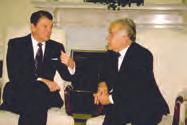
By
Oct. 11, 1938 — Arab Congress rejects partition Arab leaders adopt the Resolutions of the Inter-Parliamentary Congress, rejecting a British proposal for Palestine’s partition, demanding an end to Jewish immigration but offering to let Jews stay in Palestine.
Oct. 12, 1938 — Peace educator Salomon is born
Gavriel Salomon, the founder of the Center for Research on Peace Education at Haifa University and the education dean from 1993 to 1998, is born. He advocates coexistence programs and the pedagogical uses of technology.
Composer Daniel Barenboim, who moved to Israel as a child, is named the musical director of La Scala Opera House in Milan, Italy. He was the Chicago Symphony Orchestra’s musical director from 1991 to 2006.
Oct. 14, 1989 — Intellectual, Knesset member
Dov Sadan dies Israeli intellectual Dov Sadan dies at 87. He worked in publishing and was a Hebrew University professor and led Yiddish studies from 1952 until 1970. He served in the Knesset from 1965 to 1968.

attends the opening session of his one term in the Knesset with fellow lawmaker Gavriel Cohen on Nov. 22, 1965.
By Moshe Pridan,
Government Press Office, CC BY-SA 3.0
Oct. 15, 1894 — Prime Minister
Moshe Sharett is born
Moshe Sharett, a signer of the Declaration of Independence, Israel’s first foreign minister and its second prime minister, is born in Ukraine. He becomes the Jewish Agency’s political director in 1933.
Oct. 16, 1981 — General, politician Moshe Dayan dies Moshe Dayan — who lost an eye in World War II, was a hero of the 1967 war, faced criticism after the 1973 war and played a key role in the Camp David talks — dies of a heart attack in Tel Aviv at 66. PJC







By Family Features
House fires can be devastating, but taking proactive steps can significantly reduce the risk.
Learn how to safeguard your home and loved ones with these fire prevention tips in honor of Fire Prevention Month.
Smoke alarms are your first line of defense in case of a fire. They provide early warning, giving you and your family time to evacuate. Ensure you have smoke alarms installed on every level of your home, including inside bedrooms and outside sleeping areas. Test your smoke alarms monthly to make sure they’re working properly and replace the batteries at least once a year. If your smoke alarms are more than 10 years old, consider replacing them to ensure optimal performance.

than 170,000 home cooking fires annually. Always stay in the kitchen while frying, grilling or broiling, and keep flammable items such as potholders, paper towels and wooden utensils away from the cooking area. Additionally, clean your stove and oven regularly to prevent grease buildup, which can catch fire, and keep a fire extinguisher within easy reach.
Keep flammable materials at bay
Store gasoline, propane and other flammable liquids in approved containers and keep them in a well-ventilated area, away from heat sources and out of reach of children. Ensure your home is free of excessive clutter, especially in the basement, attic and garage, which can fuel a fire and make it harder to escape.

Sit down with your family and create a detailed plan that includes an exit strategy (or two) from every room in your home. Make sure everyone knows where to meet outside and practice your evacuation plan regularly.








Cooking is the leading cause of house fires in the United States, according to the National Fire Protection Association with fire departments responding to more
To help prevent electrical fires — electrical distribution or lighting equipment ranks third among causes for home fires, according to the NFPA — regularly inspect your home’s electrical system. Look for frayed wires, overloaded outlets and malfunctioning appliances. Avoid using extension cords as a permanent solution and never run them under rugs or furniture. Additionally, make sure to use light bulbs with the correct wattage for your fixtures.
Find more tips to help keep your home safe at eLivingtoday.com. PJC

By Family Features
Often positioned near the primary point of entry, mudrooms are a popular addition to many family homes. These organizational dynamos are the perfect place to catch muddy boots, backpacks, sports equipment and dirty paws before they make it all the way into the main living areas. Luxurious mudrooms in high-end homes can sometimes boast custom cabinetry, full bathrooms, laundry facilities, showers for pets and direct pantry access.
Regardless of whether your mudroom is an actual room or just a small space near the front door to hang bags and jackets, the organizational basics are the same:
Corral clutter: One of the most important items in any mudroom is storage for shoes, pet supplies, backpacks, sporting equipment and other items. If built-in storage isn’t in your budget, put up a sturdy shelving unit with a bin or basket for each family member.
Get hooked: Securely anchor a row of strong hooks along the wall for coats, hats, scarves or other seasonal accessories that may otherwise find themselves dropped on the floor upon arriving home.

Mud happens: Mudrooms are meant to handle dirt so nix the carpet and lay down tile or hardwood flooring. Pick a stylish rug to catch dirt in its tracks while also adding a design element to the space.
Shoe space: Place a wooden bench or sturdy coffee table near the door so everyone has a place to sit while removing shoes. Slide a few baskets or bins underneath as an alternate location for storing backpacks and other gear when not in use.
Take command: Create a family command center by adding a small cabinet or desk with a corkboard above. It makes for a perfect sp ot to stash keys, charge cell phones, open mail, sort school papers and post the family calendar.
Find more organization tips and tricks at eLivingtoday.com. PJC




By Family Features
Whether you’re fatigued by seeing the same decor every day or simply looking for an opportunity to refresh indoor spaces with an appealing mini makeover, rethinking your favorite room in the house doesn’t need to be an expensive ordeal. Even if your budget is tight, you can still make small changes to transform a room. Consider these ideas:
• Bring stylish flair to your space with a new color scheme. Rather than replacing all the furniture, which can be costly, focus on smaller accessory pieces such as pillows and decorative items. Create variety by using multiple hues of the same color or mixing two or more complementary colors.
• Introduce new accent furniture. Smaller and less cost-prohibitive than centerpieces like a couch, for example, accent pieces such as end tables or a coffee table can provide subtle changes to the look of a room. You could also opt to refinish a piece of furniture you have on hand to create a look that’s all your own.

Morph your room by simply rearranging what you already own. Adjusting the orientation of your furniture and decor can let you see your favorite room from a whole new perspective.
• Whether it’s a flea market find, such as an old window frame that you paint and add a display shelf to the base, or a series of photos from your favorite vacation destination, adding some DIY art can not only update your room, but make it more personal, too.
A new look for your favorite room can go a long way, so find ways to update your space for a comfy retreat you can enjoy. Find more ideas at eLivingtoday.com. PJC









By Family Features
From improved air quality and increased wildlife habitation to enhanced property values and aesthetics, planting trees offers numerous benefits that contribute to a healthier environment and more beautiful landscape.
However, selecting the right tree is crucial for ensuring its long-term health and compatibility with your property. Consider factors such as soil type, climate and the tree’s size when fully mature as well as your purpose for planting the tree — such as shade, fruit or ornamental beauty — to help narrow down your choices and select a tree that meets your requirements.
Once you’ve selected the perfect tree (or trees) for your property, follow these steps to plant a tree that will thrive for years to come.
1. Choose a location that offers ample space for the tree’s roots and canopy to grow. Avoid areas with overhead power lines or underground utilities.
2. Test the soil drainage in the chosen location by digging a hole and filling it

with water. If the water drains within a few hours, the soil has acceptable drainage. If it takes longer, select a different site or add organic matter to the soil.
3. Dig a hole two to three times wider than the tree’s root ball but no deeper than its height to encourage the roots to grow outward into the surrounding soil.
4. Remove the tree from its container or burlap wrapping, taking care not to damage the roots.
5. Place the tree in the hole, ensuring the

root flare (where the roots spread at the base of the tree) is level with or slightly above ground level.
6. Backfill the hole with excavated soil, tamping it down gently to eliminate air pockets.
7. Water the tree thoroughly to provide initial moisture to the roots.
8. Apply a 2-3-inch layer of mulch around the base, keeping it away from the trunk to prevent rot.
As your tree grows, periodic maintenance

can help ensure its health and structural integrity. Water regularly, especially during dry periods, ensuring the soil remains consistently moist but not waterlogged. Prune the tree to remove dead or diseased branches and shape its growth. Fertilize as needed based on soil test results and tree species requirements.
If you have questions, local nurseries or county extension offices can provide recommendations tailored to your region. For more lawn and garden advice, visit eLivingtoday.com. PJC
Exterior | Interior | Commercial
• Interior Painting & Exterior Painting
• Repaints & New Construction
• Wallpaper Removal
• Deck & Fence Staining/Refinishing
• Faux & Decorative Finishing
• Interior & Exterior Trim Packages


• Drywall & Wood Repair
• Holiday Light Installation
• Cedar Siding Staining
• Brick and masonry painting
• Stucco and EIFS painting & repairs
• Log Home Staining




• Aluminum and Vinyl Siding Painting
• Roof Coatings
• Pre-Paint carpentry and repair options
• Cabinet Refinishing
• Multi Family Property Painting ... and more!







Continued from page 1
Pennsylvania. “This is when there were calls for violence.”
Extremism, Fishman said, is occurring on all sides of the political spectrum.
“We are seeing a horseshoe effect,” she said. “It doesn’t matter if it happens on the right or the left. It’s so extreme and we’re seeing it on both sides of the state.”
One of the takeaways illustrated by the murder of Charlie Kirk and the bombing of Pennsylvania Gov. Josh Shapiro’s residence, Fishman said, is that people now feel emboldened to turn to violent rhetoric and action when triggered, especially because of the echo chambers on social media, gaming sites and other online platforms.
“It’s given people permission to say, ‘I’m angry and my first response is to be violent,’” she said.
Not surprisingly, the ADL reported that anti-Israel activity surged following Hamas’ Oct. 7 terrorist attack on the Jewish state, including a June 2024 encampment at the
Continued from page 1
Jews now call Vilnius home. The number of kosher consumers in the city, Yatom said, are “fewer than the palm of your hand.”
Religious dietary adherence in Europe is different than in the U.S. As opposed to purchasing grocery store items bearing symbols marked by certifying agencies, most European products lack such stamps. Finding something in the supermarket with a hechsher (a rabbinic symbol or trademark) is unexpected, Yatom said. “It’s like fishing.”
The quest reflects long-standing connec tions — not merely between packaging and consumers, but between Vilnians and the printed word. The relationship between people and paper was repeatedly mentioned by guides and experts throughout an early September seminar operated by Classrooms Without Borders, a Pittsburgh-based organi zation that provides professional development for educators.
Vivo YIVO
Standing inside the National Library of Lithuania, while describing an exhibition marking the “origins, journey and legacy” of YIVO — founded 100 years ago in Vilnius as the Yiddish Scientific Institute — Lara Lempertienė said, “Not many people realize how central YIVO was.”
University of Pittsburgh where protesters demanded the university terminate its Hillel chapter and reject ties with the “Zionist regime.”
“There’s nothing in the report that is unknown to us,” said Shawn Brokos, Jewish Federation of Greater Pittsburgh’s community security director. “We are acutely aware that incidents of antisemitism continue to rise because we see it right here in Pittsburgh.”
So far, there were 257 incidents of antisemitism reported this year — more than the 244 reported last year at this time. If the pace continues, Brokos said, the city will exceed last year’s numbers, which were already higher than previous years.
“It does effectively capture what we’ve seen — that is, the rise in white supremacist propaganda,” she said.
Julie Paris, StandWithUs MidAtlantic regional director, said the ADL report highlights the fact that hostility toward Jews is becoming “dangerously normalized,” fueled by “antisemitic acts, political violence and anti-Israel activism that traffics in
to the increase in antisemitic activity by “empowering students to push back through K–12 and campus education, engaging in public discourse so leaders and communities can recognize when criticism crosses into antisemitism, and fighting online hate by countering antisemitic content across digital platforms.”
The ADL report concludes with four recommendations for policymakers:
1. Support current legislation to address masked harassment and intimidation.
2. Establish a state task force dedicated to addressing antisemitism and extremism, including representatives from law enforcement, education and community organizations.
3. Adopt the International Holocaust Remembrance Alliance working definition of antisemitism.
4. Build on the foundational work of the original advisory committee that helped develop Pennsylvania’s Holocaust education guidelines, and establish a permanent Holocaust commission to ensure curricula remain current and educators receive
the IHRA definition of antisemitism adopted because it is commonly misinterpreted.
“A lot of arguments against the IHRA definition is the belief that you can not criticize Israel,” she said. “It does not say you can’t criticize Israel.”
Pittsburgh, Fishman said, does a “great job” fighting back against antisemitic activity. She praised the interfaith work in the city, including a Hindu-Jewish dialogue group that started this year, and the ADL’s Rekindle initiative, which facilitates dialogue between the Jewish and Black communities.
“Every time that happens people walk away saying, ‘Wow, we are so much more alike than I walked in believing,’” she said. “I know it’s hard right now, but any opportunity people have to find that sense of community and build dialogue is so important.”
The full “Hate in the Keystone State” report can be found at adl.org/resources/ report/hate-keystone-state-extremismantisemitism-pennsylvania. PJC
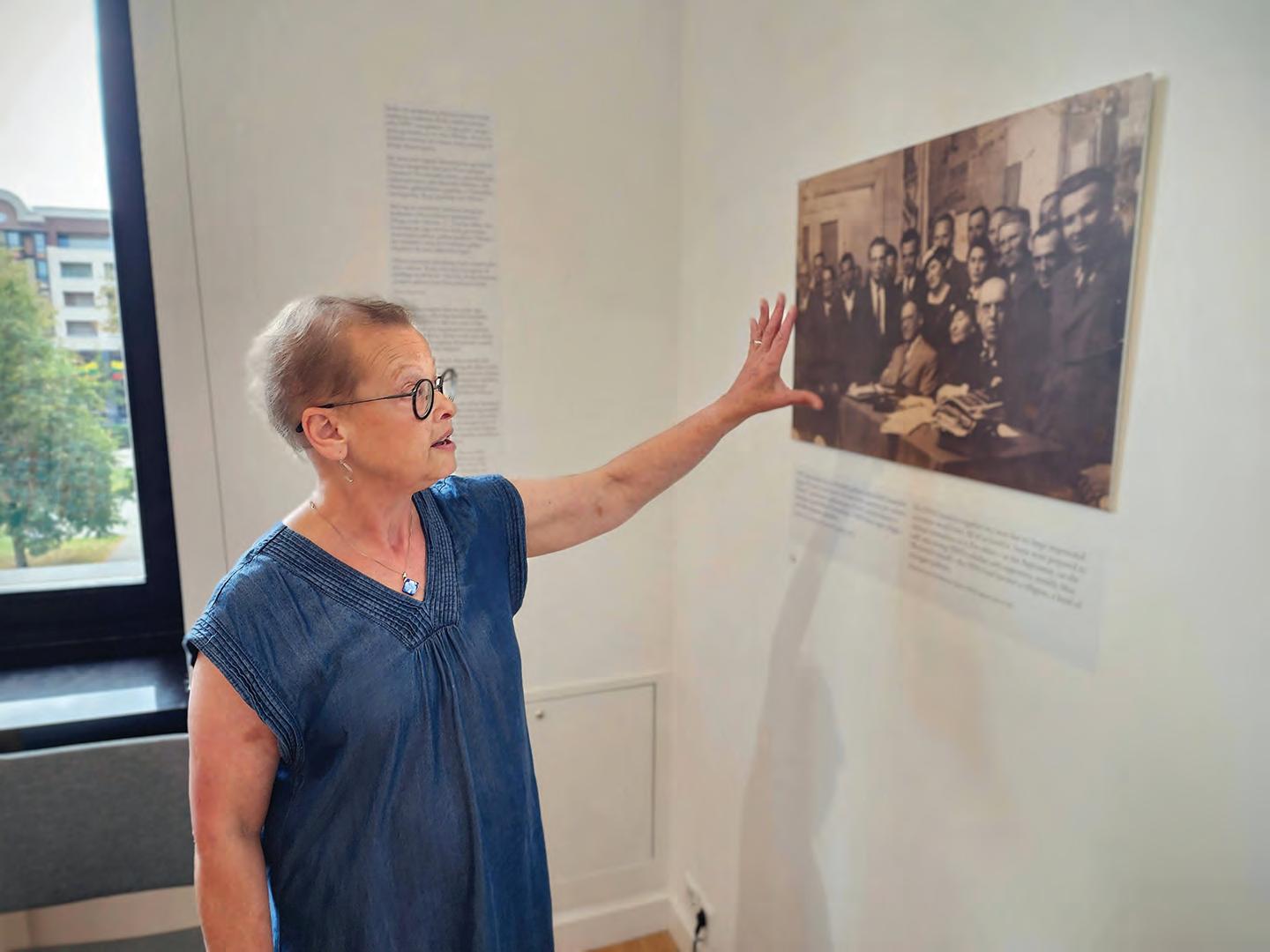
to share her grandfather’s story.
Before the war, Abraham Sutzkever (Kalderon’s grandfather) was a member of Yung Vilne, an avant-garde literary collective.
Its founders sought to document and preserve the history, culture and language of Eastern European Jewry by academically scrutinizing Yiddish. Materials were collected, articles and books were published, conferences were held and talks were delivered globally. Through the 1930s, YIVO branches spread worldwide.
Lempertienė, head of the library’s Judaica Research Center, led visitors past 71 exhibits, including manuscripts, signage and other printed pieces highlighting YIVO’s continuous mission.
“We wanted the documents to talk,” she said. Though the Holocaust decimated Eastern European Jewry, and ensured the near-cessation of Yiddish as a primary language among Jews, YIVO survived.
In fact, the organization “never ceased to exist.” Pointing to glass-covered materials, including an undated 6-year-old’s Yiddish language notebook alongside cards of participants in autobiography and diary competitions
Recognized for his talents, the Siberian-born Sutzkever, who moved to Vilnius at a young age with his mother after his father died, found himself caught between “life and death.”
Recalling a tale told by her grandfather, Kalderon, 49, continued. With the Holocaust unfolding, chaos covering the land and the world “on fire,” what was there to write?
Sutzkever questioned whether to continue creating. A supernatural instruction followed: The “Angel of Poetry” promised him that upon delivering “brilliant verses” the poet would be protected with a “flaming sword.”
Consequently, every day in the ghetto, Sutzkever wrote — sometimes in unimaginable conditions.
As recounted in his diary, Sutzkever once hid in an attic only to discover a dead Jewish person beside him. After noticing the body, the poet located charcoal “and began to write a poem on the corpse as if I were writing on paper.”
Later, after seizing YIVO’s headquarters, the
Faced with a dilemma, and possible death, Sutzkever and other brigade members responded. They delivered some materials to the Nazi looters. However, more precious items — including, original writings of Sholem Aleichem and manuscripts by the Vilna Gaon — were discretely transported, in homemade diapers, back to the ghetto and buried.
The perceived absurdity of risking life for leaflets was mentioned by Paper Brigade member Shmerke Kaczerginski in his diary.
“Ghetto inmates looked at us as if we were lunatics,” he wrote. While they were smuggling in food, “We were smuggling books, pieces of paper, occasionally a Torah scroll or mezuzahs.”
Kalderon spoke about her grandfather again at an evening program at the Vilnius Jewish Public Library with the library’s head, Liana Jagniatinskytė.
Following the event, Jagniatinskytė said the library, between its books and programs, perpetuates the “very long history of Jewish life” in Vilnius.
Surrounded by thousands of volumes, Jagniatinskytė continued. “We are trying to
David Rullo can be reached at drullo@ pittsburghjewishchronicle.org.
keep the memory of those who lived here alive, and to continue the tradition of Jewish books.”
When asked about the oddity of a nearby exhibition boasting YIVO’s Vilnius origins in a city with few remaining Yiddish speakers, or a Jewish library’s operations in a place nearly stripped of Jewish vitality, Jagniatinskytė cautioned against pessimism.
“The community is shrinking in numbers, but there are people who are coming back,” she said. “Some of them are coming and living here. Some are coming partially and spending summers. Some come for a few months.”
Jagniatinskytė pointed to Tamara Garon, 77, a former Vilnius resident who moved to Israel in 1992 but returns to Lithuania one week each year.
The annual trek, Garon said, is about reconnecting “with her roots.” Her grandfather, she said, maintained a seat at the eat Synagogue of Vilnius and would bring his son there (Garon’s father) to hear ous cantors sing.
Tamara Garon’s father, Aaron Garon, became a Yiddish journalist and soldier who fought against the Germans as a member of the Red Army’s 16th Division. After the war, Aaron Garon continued writing about Vilnius and contributed regularly to “Yerusholáyim d’Líte ,” a Lithuanian Jewish community newspaper that appeared in Yiddish, English, Lithuanian and Russian. Aaron Garon emigrated to Israel, but like his daughter repeatedly returned to Lithuania.
“He couldn’t forgive the Jewish state for holding Yiddish in such low esteem,” she said. Because of her father’s stories, and her own observations, Tamara Garon told this reporter she understands Vilnius’ altered landscape.
“Before the war, it was a very important center of Jewish life. The Jewish community was very vibrant,” she said. “Now, there are almost zero Jews left here.”
Less than an hour later, at the Choral Synagogue, Yatom would articulate the realities of Jewish life in Vilnius.
Before this reporter headed to the worship space for evening services, Garon was asked what to make of it all.
She paused.
Surrounded by thousands of Jewish books in a room with merely a handful of Jews, she replied. “It is the destiny of this place.” PJC Adam Reinherz can be reached at areinherz@pittsburghjewishchronicle.org.
painted, according to Shawn Brokos, Jewish Federation of Greater Pittsburgh’s community security director.
By David Rullo | Senior Staff Writer
Aday before the Jewish community celebrated Yom Kippur, the holiest day on the Jewish calendar, swastikas were painted on several signs and businesses in Mt. Pleasant Township and Mt. Pleasant Borough.
Along with the hate symbol, racist slogans containing the “n” word were also
Continued from page 4
There is no end of ways in which we have honored the Torah. I like to think this is because the Torah also honors us with its ability to be reinterpreted and retold, without end. This sense of endless giving seems to be at the heart of Simchat Torah.
The Talmud, along with generations of scholars since, have made the remarkable point that the Torah and the Bible are themselves forms of midrash and interpretation. Every generation — maybe even every individual reader — has their own Torah.
“We saw it on Reddit,” Brokos said. “We didn’t receive any incident reports, but that’s not unusual because it’s off the beaten path, for sure.”
Brokos said Federation reached out to Mt. Pleasant Borough police and Pennsylvania State Police. Both departments confirmed they were aware of the vandalism and were investigating.
Mt. Pleasant is not an area where one
Another remark from the sages says that, “Everything that a diligent student will teach in the distant future has already been proclaimed on Mount Sinai.” This idea neatly wraps up the entire Jewish past and its possible future into the very moment any one of us takes up the Torah for ourselves. Shaye J. D. Cohen makes the vivid point that, for the Jews who compiled the Torah, the act of creating a text that could only change during the act of interpretation “set free the wellsprings of the imagination … They could claim loyalty to the sacred text even as they freed themselves from it by interpreting it … All Jews who affirmed the validity of scripture had to engage in exegesis … ” In case all this seems to be mere scholarship, Holocaust survivor and theologian Emil
might expect to see antisemitic activity.
Greensburg, slightly more than 11 miles away, has a small Jewish community near the Westmoreland County alcove, but Mt. Pleasant, with fewer than 5,000 residents, has no sizable Jewish community.
Still, the antisemitic graffiti doesn’t shock Brokos.
“I’m no longer surprised when we get reports of antisemitic or hate graffiti, but Mt. Pleasant is a town that we have not have any interaction with because they have had no previous incidents, so in that regard, it was
Fackenheim once described a picture of Jews fleeing a pogrom that hung in his parents’ house. The old, bearded Jews in the picture are terrified “to leave behind what is most precious to them.” What is this most precious thing? “In view of anti-Semites,” Fackenheim says, “these Jews would doubtless be clutching bags of gold. In fact, each of them carries a Torah scroll.”
Alexander Alan Steinbach put it even more starkly: “In some countries where laws prohibited our fathers from studying the Torah, many were thrown into the fire together with the Torah Scrolls. But always they cried out, ‘The Scrolls burn but the words ascend to heaven.’ Neither fire nor water, neither rack nor dungeon, hate nor cruelty, ever succeeded
surprising,” she said.
No group or person on Federation’s security radar has operated in the area, she said. Borough police asked that residents not remove the antisemitic and racist graffiti from area signs until they have completed their investigations.
Anyone observing antisemitic activity or graffiti is urged to report it to local law and to Federation at jewishpgh.org/form/ incident-report. PJC
David Rullo can be reached at drullo@ pittsburghjewishchronicle.org.
in shaking our fidelity to our Torah Bride. And that is why we live today.”
When the Baal Shem Tov became aware of Jews who mocked his followers for moving around so much during prayer, he compared such gestures to the flailing of someone drowning in water. Moving in such a way, the person at prayer “is saving himself from the raging waters that come upon him to distract him from his prayer.”
With this in mind, perhaps the dancing and music of Simchat Torah can be compared to the joy of surviving, and reaching the shore once again. PJC
Tim Miller is a freelance writer living in Pittsburgh. He is online at wordandsilence.com.
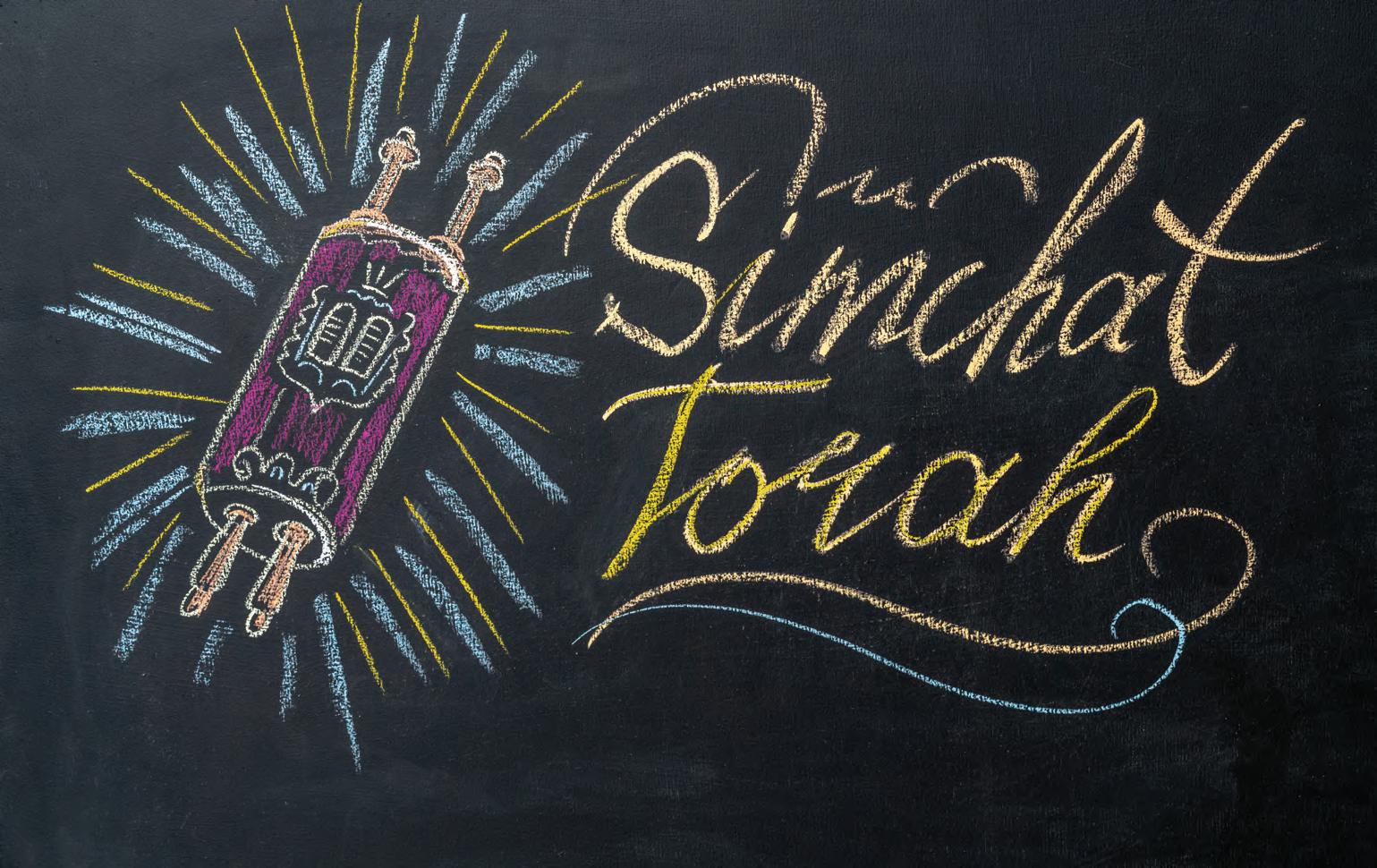
When hate strikes again, where is the solidarity we were once promised?
As we weep for the Jewish lives brutally stolen on Yom Kippur in Manchester, England, we weep as well for the drastic turn the world has taken against our people in just seven years.
On Yom Kippur, Jihad Al-Shamie, a 35-year-old British citizen of Syrian descent, rammed his car into Jews outside Heaton Park Hebrew Congregation Synagogue in Manchester and then began stabbing them. Two Jewish community members were killed and three others were seriously injured before the terrorist was shot dead by police.
The Oct. 2 antisemitic attack on the holiest day of the Jewish calendar evoked the feelings of fear, loss and trauma Pittsburgh’s Jewish community felt on Oct. 27, 2018, when an antisemite stormed the Tree of Life building on Shabbat, murdering 11 Jews from three congregations and seriously wounding six others, including first responders.
As we mourned in the days following the Pittsburgh synagogue shooting, and worked toward healing, there was an outpouring of love from around the world. Neighbors of diverse backgrounds stood in solidarity with us. They came out in droves to comfort us and encourage us through our pain. They sent us cards and flowers and homemade
crafts. They sent funds to help us rebuild. They told us we were not alone. They promised us we were stronger than hate.
Here’s what they didn’t do: They didn’t allow a white supremacist rally to be held the very same day in the same city where Jews were murdered by a white supremacist. Looking back, it would have been incomprehensible for such an event to have occurred. People of conscience would not have allowed it.
While Al-Shamie’s motive was still being probed by the police at press time, the Guardian reported that he appeared to have “been fixated on the plight of Muslims in parts of the Middle East, particularly in recent years in Gaza.” An X account believed to belong to the attacker had a machine gun as its profile picture, “alongside a white flower, and what appears to be a copy of the Qur’an.”
The Jewish Chronicle of Great Britain reported that the killer’s father “who named
We mourn with the Jews of Manchester. We feel their pain in our bones.
But things are different now, since Oct. 7, 2023, when Hamas’ brutal attack on Israel unleashed, or maybe just revealed, a torrent of anti-Jewish hate simmering just below the surface of society, waiting for an excuse to emerge full-throttled.
The world’s relationship to Jews has changed drastically.
While it was appalling enough that anti-Israel protests were scheduled to occur in Great Britain on Yom Kippur, it was beyond sickening that those demonstrations actually proceeded in the wake of the Manchester attack.
his son Jihad, posted a Facebook message on October 7 gushing with praise for the Hamas terrorists. Faraj Al-Shamie wrote about them: ‘Men like these prove that they are men of God and regardless who leads them, they are the real compass of men who are confident of their victory.’”
Police said that Al-Shamie “may have been influenced by extreme Islamist ideology”
In saner times, it would be beyond belief that the organizers of a protest against the U.K.’s ban on a group called Palestine Action would reject a plea from London police to postpone their rally after the
Manchester murders. But these are not saner times.
So, instead, an anti-Israel protest took place in Manchester city center that very night. And demonstrators in London, who went ahead with their protest in support of a flotilla supposedly carrying aid to Gaza, clashed with police.
“Large crowds carrying Palestinian flags and placards could be seen on Whitehall into the evening,” BBC reported.
The U.K.’s Chief Rabbi, Sir Ephraim Mirvis, told BBC Radio 4, that the Yom Kippur attack was "something which actually we were fearing might happen because of the build up to this action. … You cannot separate the words on our streets, the actions of people in this way, and what inevitably results, which was yesterday’s terrorist attack.”
We mourn with the Jews of Manchester. We feel their pain in our bones. And although the death toll — thank God — was less than ours in Pittsburgh, we know in some ways their experience has been worse.
We urge the worldwide Jewish community to stand united against antisemitism, in all its forms, to support each other in times of heartbreak, and to continue building bridges with our non-Jewish neighbors to foster understanding and allyship.
None of us should feel like we are standing alone. PJC
Why reaction to the Yom Kippur attack felt like Oct. 8 all over again

When this Yom Kippur started, I knew I had to keep my phone on. Something deep inside me told me not to log off, not to allow myself the quiet of synagogue. Instead, I felt I had to stay vigilant — because something awful was coming.
The next morning, news broke from Manchester: two Jews killed outside Heaton Park Synagogue, others wounded, worshippers terrorized. The attacker, Jihad Al-Shami,
The
tried to storm the building during Yom Kippur prayers before being shot dead by police. He had come to kill Jews on the holiest day of our year, and he succeeded. It was the nightmare every Jew in this country has carried for years.
the river to the sea” and “Zionism is a crime.” In Edinburgh, protesters clashed with police. Outside Downing Street, mobs pushed against barricades carrying Palestinian flags. The
same families who once believed Britain was home must once again wonder if it is.
And yet, even as our community reeled, the response on Britain’s streets was not silence, not reflection, not a moment of silence and grief, but celebration. At Liverpool Street station, Free Palestine demonstrators chanted “from

For the first time in the Gaza war, Hamas has indicated that it is willing to engage in a discussion about ending the conflict broadly on Israel’s terms.
That is a remarkable shift in a saga that has offered little but stalemate and carnage.
The group’s latest statement conditionally
agrees to release all 48 remaining hostages — living and dead — within days. True, they added vague caveats about “field conditions,” and pushed back against President Donald Trump’s insistence on their absolute agreement with his proposed peace plan by Sunday. But Hamas has crossed a threshold by accepting the principle of release.
The group is almost certainly aiming to trade flexibility on the hostages for easing of the hardest clause in Trump’s peace framework: the requirement that it disarm and lay down its weapons. Disarmament would mark the end of Hamas as a militia and as a meaningful force
blood in Manchester had not dried, and still the slogans rang out calling for the eradication of the Jewish state — as if Jewish lives senselessly taken during a Jewish holiday was not a reason to pause, but a reason to double down. It felt familiar, like we’ve been through it before.
Online, it was even worse. Some expressed sympathy, but too many justified the attack as “inevitable.” Some said it’s “a false flag” that Israel is behind the attack — Jews are doing it to themselves. Others wrote bluntly that we “deserved it.”
Then I realised why it felt familiar, it was the same feeling I had on Oct. 8, 2023, all over again — the day after Hamas slaughtered 1,200 Israelis and kidnapped more than 250 others, when the world moved immediately to excuses, explanations and erasure of Jewish suffering.
That morning after, Jews understood that something had broken. Now in Manchester,
in the region. They are desperate to avoid it.
The problem for Hamas is that the leverage is no longer theirs.
The surprise variable is Qatar, Hamas’ erstwhile patron. Trump’s recent executive order extended NATO-style protections to the tiny emirate: The United States now pledges to treat any attack on Qatari territory or infrastructure as an attack on itself. In practice, that means that if Israel again targeted Hamas leaders in Doha, it would, absurdly, be at war with the U.S.
No Arab state has ever received such a guarantee. For Doha, which hosts Hamas’ exiled leadership while also playing host to
the vast U.S. Al Udeid Air Base, it is a dream come true. For Hamas, it is a nightmare: Their patron is now under immense pressure to demonstrate that it can rein in the very group it once indulged.
This puts Hamas in an impossible bind. It knows that the Arab League has lined up behind Trump’s framework, that Israel has accepted it, and that the Americans are all in. For Hamas to reject the deal outright would expose the group as suicidal, willing to fight on alone while
Last week, the Chronicle asked its readers in an online poll the following question: “Do you know the meaning behind the four species (lulav, etrog, hadas, aravah)?” Of the 123 people who responded, 31% said, “No, not really”; 26% said, “I know the basics”; 24% said, “Yes, in detail”; 15% said, “I’ve heard about it, but I’m not sure”; and 4% said, “I just looked it up.” Comments were submitted by 19 people. A few follow.
Courtesy of AI, I now know at least one of the interpretations.
I do know the meaning, and while I respect the tradition and practice, for myself I find the shaking of produce wholly uninspiring.
Mazzig:
Continued from page 14
the same truth stares us in the face: Jewish life and safety is negotiable in Britain.
The government’s reflex is to offer “more security.” Synagogues, schools and Jewish homes will be turned into fortresses. But why should Jews accept living under armed guard when Christians and Muslims in Britain worship freely and safely? Why must our children walk through metal detectors to access what others take for granted? The real question is not how many more cameras and guards can be deployed — it is why the U.K. tolerates a movement that normalizes hate until it spills into murder.
Perry:
Continued from page 14
civilian Palestinians in Gaza are crushed.
Yet for Hamas to accept the deal would be for it to surrender its identity. That is why the language of its statement is so tortured: yes to the hostages, but not so fast; yes to transferring governance, but only through “national consensus”; yes to handing over weapons, but on terms not yet defined. It is the vocabulary of a cornered movement.
Trump, unsurprisingly, claimed victory. He hailed Hamas’ response as proof they were “ready for lasting peace,” and urged Israel to stop bombing immediately to allow the hostages’ safe release. Yet the truth is that Hamas is blinking, but not yet broken. Its strategy is to dangle the hostages, extract concessions on disarmament, and emerge with some vestige of power intact.
The question is whether the combined weight of the U.S., Israel and the Arab world will let it.
U.S. leverage has changed the region’s
The meanings given are not “the” meaning. They are merely “a” meaning. They are meant to teach a lesson, but should be understood in that context and not as some underlying truth.
I know about the lulav and etrog. Two out of four ain’t bad!
I learn them every year, but then I forget them before Sukkot rolls around the next year!
The only two I’ve ever heard of are the lulav and the etrog. This is the first I’m hearing of the others.
A wonderful mitzvah to perform. Get close to nature and creation. I need to Google it again!
There are differing interpretations as to what they represent.
These words are Greek to me, but Chag Sukkot Sameach anyway. PJC
Compiled by Toby Tabachnick Do
More security now is an admission of failure by the government.
The evidence has been there for months. More than 8,000 antisemitic incidents have been recorded in the U.K. since Oct. 7, 2023. Jewish pupils bullied in classrooms. Jewish patients refused medical treatment. Families leaving neighborhoods plastered with Palestinian flags and anti-Israel graffiti. Week after week I see it, marches in central London where dozens are arrested for hate crimes, only to be released within hours.
Antisemitism in Britain today is not confined to the far right. It thrives in a toxic alliance: radical Islamists who cloak themselves in “resistance,” and sections of the political left who see Jews as colonial interlopers. Together
trajectory before. When former President Dwight Eisenhower forced Israel, Britain and France out of Sinai in 1956, he made clear that even allies have limits. When former President Jimmy Carter brokered the Camp David Accords in 1978, he incentivized peace with lavish subsidies. Trump’s move with Qatar fits this tradition, but with a twist: He has extended sweeping guarantees by executive order alone, bypassing Congress. It is foreign policy as presidential fiat, a gamble resting on one man’s instincts.
How good, in this situation, are those instincts?
For Israelis, the deal is tolerable precisely because it aligns with their goals. The hostages would return quickly, while the IDF’s withdrawal from Gaza would be conditioned on Hamas’ disarmament, leaving Jerusalem in control of the timetable. Gaza would be managed by technocrats reporting to an international board, with the Palestinian Authority’s eventual return left deliberately vague.
For ordinary Israelis, the plan promises closure after catastrophe. Even Prime Minister
Along with the merger, let’s preserve the unique stories of Rodef Shalom and Temple Sinai
On Yom Kippur, during the interlude between Yizkor and the afternoon service, retired Channel 11 News anchor David Johnson interviewed two Temple Sinai members and two from Rodef Shalom Congregation about their Jewish journeys. I was honored to be one of the four. As I listened to the stories I was inspired but also saddened that the stories of thousands upon thousands whose lives have been impacted by the two historic congregations will be
they have created an environment where chanting for the destruction of the only Jewish state and the murder of millions of Jews is framed as progressive — and where violence against Jews becomes thinkable.
“This day was always going to come” one headline read. Indeed, it did not come out of nowhere. It came because antisemitism was normalized. It came because leaders chose denial over confrontation. It came because Jewish pain was easier to ignore than the anger of the mob.
Now the same parents who tucked their children into bed on Yom Kippur must send them to school under police protection. The same rabbis who led prayers must calculate whether enough guards will show up next Shabbat. The
Benjamin Netanyahu, bruised and cornered, can sell it — perhaps even turning it into an electoral lifeline ahead of the 2026 election, especially if it hastens the prospect of normalization with Saudi Arabia.
For Gazans, the deal offers the first real prospect of change in two decades. Billions in reconstruction aid, international attention, and a path away from jihadist rule could transform lives. If Hamas rejects the proposal, they will condemn Gaza to further annihilation and isolation. Most Gazans surely know this.
Of course, Hamas might still somehow refuse. If it does, the likely consequence is that Israel will push forward with its war plan. That would almost certainly mean the installation of a military administration to govern more than 2 million Palestinians, an arrangement bound to trigger a prolonged insurgency. The human and financial toll would be immense.
For Israel, a long-term Gaza occupation would deepen its diplomatic isolation, drain its economy, and force unprecedented reliance on reservists — a burden that could rend the fabric of Israeli society. The sheer
Chronicle weekly poll question: In the past year, have you or has someone you know been directly affected by an antisemitic incident? Go to pittsburghjewish chronicle.org to respond. PJC
same families who once believed Britain was home must once again wonder if it is.
The U.K. has a choice. It can go on issuing platitudes, adding another guard at every synagogue door, and waiting for the next attack. Or it can face the truth: that the chants, the marches, the mobs are not about Israel’s policies — they are about Jewish existence itself. Instead of preaching to Israel how to keep its Jews safe, the U.K. government must ask itself why it can’t keep its own safe.
If Britain cannot say that now, Manchester will not be the last. PJC
Hen Mazzig is an Israeli writer and the co-founder of the Tel Aviv Institute. This article was first published on the Jewish News.
costs of administering and policing Gaza would consume national resources on a scale unseen in decades.
That scenario is so damaging for Israel — miring it in an unwinnable occupation, bleeding its legitimacy and dividing its people — that some argue Hamas wants it, regardless of the cost to Palestinians.
What Hamas must decide is whether to cling to its arsenal, and its dreams of destroying Israel, at the price of obliteration. Its instinct, as its reaction to Trump’s proposal showed, will be to maneuver, delay and bargain. But with Qatar’s status bound to the U.S., the Arab League unified, and Trump promising “hell like no one has ever seen” if the deal is refused, the net is tightening. PJC
Dan Perry is the former chief editor of The Associated Press in Europe, Africa and the Middle East, the former chairman of the Foreign Press Association in Jerusalem, and the author of two books about Israel. This article was originally published on the Forward.
lost with the emergence of the new congregation (“Rodef Shalom, Temple Sinai members approve unification,” June 13).
I implore the community, perhaps with the help of the Rauh Jewish Archives, to preserve in perpetuity as many Temple Sinai/ Rodef Shalom stories as possible as they truly are an integral part of the history and fabric of Jewish Pittsburgh.
Harold Marcus Bala Cynwyd, Pennsylvania
We invite you to submit letters for publication. Letters must include name, address and daytime phone number; addresses and phone numbers will not be published. Letters may not exceed 500 words and may be edited for length and clarity; they cannot be returned. Send letters to: letters@pittsburghjewishchronicle.org or Pittsburgh Jewish Chronicle, 5915 Beacon St., 5th Floor, Pittsburgh, PA 15217.
We regret that owing to the volume of correspondence, we cannot reply to every letter.
By Miriam Szokovski | Chabad.org
The best thing about these — or second best actually, after the taste — is how incredible your house will smell while they’re baking. All those
Middle Eastern spices in the meat, along with the dates themselves … it’s a beautiful cacophony of aromas.
Ingredients:
20-25 medjool dates
½ pound ground beef or lamb
2 cloves garlic, crushed
½ teaspoon kosher salt
¼ teaspoon cumin
¼ teaspoon allspice
¼ teaspoon coriander
¼ teaspoon cinnamon
1 tablespoon pine nuts
½ heaping tablespoon medium-heat harissa paste
3 tablespoons very finely diced or minced
onion
⅛ cup chopped parsley

Slit the dates open and remove the the ingredients.


Take small amounts of the ground beef mixture, approximately 1 heaping tablespoon at a time (depending on the size of your date), and roll into a small ball. Press into the date and spread out so it fills the date. Keep in mind, the meat will shrink when cooked, so don’t skimp on the filling.
Bake for 10-12 minutes at 400 F. Cut
Miriam Szokovski is a writer, editor, and member of the Chabad.org editorial team. She also shares her cooking and baking on Chabad.org/food. Copyright Chabad.org/Recipes. Reprinted with permission.




— BOOKS —
By Mira Fox | Forward
Strap on your best smooth-soled Italian loafers and get ready to spring over some cobblestones, because Robert Langdon — everyone’s favorite tweed-jacketed, baritone-voiced, handsome Harvard “symbologist” — is back, and he’s racing through the streets of Prague.
In Dan Brown’s newest thriller, however, there’s no Dante or Mary Magdalene; Brown is finally veering away from the Christian mythos that drove all of his previous adventures such as “The DaVinci Code” and “Angels and Demons.” This time, he’s taking on something older and far more mysterious: Judaism.
Each of Brown’s symbology books has a central guiding myth or story, i.e. the Holy Grail, Dante’s “Inferno” or the Founding Fathers’ involvement with Freemasonry.
“The Secret of Secrets” follows the same formula, and its opening moments make its central myth obvious. Within the first few pages of the book, the Golem of Prague — which for some reason Brown insists on spelling as Golěm — has already murdered someone.
The story proceeds about as you’d expect, if you’ve read any of the previous Robert Langdon novels; though it has been eight years since we last read about the Harvard professor’s misadventures, he remains dashing and impressively fit for his age, as Brown reminds us regularly, though this time we hear less about his penchant for tweed. Langdon still has a photographic memory, which still comes in handy as he deciphers various codes, and the book is still loaded with long tangents about the history of various buildings and artifacts that Langdon is sprinting by. (Even while desperately attempting to escape from a gunman in a historic library, the symbologist has the presence of mind to consider the artist behind the frescoes on the ceiling.)
But the book is notably lacking in something surprising: the Jewish history of Prague, or of the Golem, or blood libel. There are no Hebrew translations or reinterpretations of Talmudic texts. We don’t learn some little known midrash that holds a secretive double meaning. These are the kinds of factoids that usually drive Brown’s mysteries, yet they’re absent.
The plot revolves, instead, around a damsel in distress, who readers may remember from the previous Langdon books: The beautiful “noetic scientist” Katherine Solomon, who is about to publish an academic treatise detailing her research on human consciousness and death. Apparently some very powerful people want to destroy her manuscript, so the action and mystery unfold across Prague as Langdon attempts to save Katherine, save her book, and — hey why not — save all of Prague and also
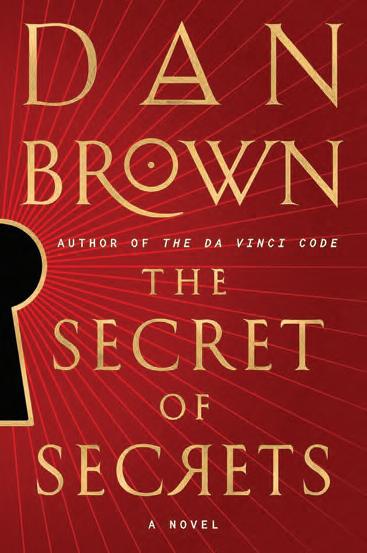
maybe the United States. And, somewhere in there, a Golem is on the loose. Brown’s previous novels have delved into various Christian mysteries with vigor and palpable fascination; whatever Brown’s many foibles as a writer, you could tell that he was excited by the myth of the Holy Grail, which took centerstage in “The DaVinci Code,” which he reinterpreted to be an allegory about a love affair between Jesus and Mary Magdalene. In “Angels and Demons,” Brown has great fun with the secretive inner workings of the Vatican, and “Inferno” is laden with delighted diversions into Christian history and ideas about the afterlife, courtesy of Dante Alighieri’s “Divine Comedy.”
In “The Secret of Secrets,” Brown outlines the basic myth of the Golem: Rabbi Judah Loew, a 16th-century Talmudic scholar and leader of Prague’s Jewish community, created a magic guardian out of clay to protect the ghetto from antisemitic attacks. Loew engraved the word “emet,” or truth, in Hebrew on its forehead to bring it to life. Eventually the Golem turned on the rabbi, almost killing him, until Loew managed to rub away the aleph in “ emet ,” turning the word to “ met ,” or death, and stopping the creature; its body was placed in an attic in case it was needed again.
That’s about all we get, yet there’s so much more to explore. In another version of the story, Loew made sure to erase the aleph from the Golem’s forehead every Shabbat to allow it to rest; instead of going on a murderous rampage, the creature was eventually destroyed because it desecrated the holy day. According to some stories, a Nazi tried to ransack the attic where the Golem was stored, and died mysteriously. Others say its body was stowed in a genizah, where sacred Jewish texts are placed since they cannot be destroyed.
Stephanie made a confusing insurance process easy to understand. She listened to our concerns, explained the pros and cons clearly, and guided us to the best plan. We’re so grateful for her help and highly recommend her!
GRATEFULLY, DEBBY EISNER


Sunday, October 19, 2025 // 5:00 PM
Carnegie Mellon University, Jared L. Cohon University Center, McConomy Auditorium 5032 Forbes Avenue, Pittsburgh, PA, 15213
Join author and historian Pamela Nadell in conversation with New York Times columnist and 2013 Pulitzer Prize winner Bret Stephens about her new book: Antisemitism, an American Tradition. They’ll discuss the long history of antisemitism in American life and explore how understanding the past can help us stand up and fight back against hate.
















Stop
Warm up with homemade matzoh
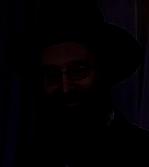
On each yom tov there are special mitzvot associated with the day. On Pesach there is matzo, as well as the Paschal lamb, the Haggadah, the seder and its trappings. On Chol Hamoed Pesach, there is the Korban Omer, the barley offering. On Shavuos, the two wheat loaves were offered, as well as the celebration of the giving of the Torah. Rosh Hashanah has the shofar. Yom Kippur has the fast and the Avoda, the special service of the day — the only day when the high priest entered the Sanctum Sanctorum. Sukos has the sukkah, the lulav and the other species, and the Nisuch Hamayim, pouring of the water and its accompanying ceremonies. Then comes Shemini Atzeres, the final holiday. But no mitzvah is associated with it. Of course there is Shabason, work is forbidden. Of course there is simchas yom tov, one must enjoy yom tov. But these are not unique to this day.
Shemini Atzeres has no props. It is not a continuation of Sukkos. On the contrary, it is forbidden to sleep in the sukkah on Shemini Atzeres, a violation of bal tosif, do not add to a mitzvah. Similarly, one may not take the four species on this day.

of the basic mitzvah — the feeling that it is not enough. The Torah wants people to stop and reflect on the basic mitzvah. With recognition of its beauty and grandeur there is no purpose nor desire to augment it or to extend it. Augmentation implies that it is too small. Thus, one has belittled the Torah mitzvah. This is Shemini Atzeres. Just the mitzvah. Yom tov. No props. No distractions with the practical physical or spiritual rituals of the other yomim tovim. Enjoy time with Hashem, the essence of every moed Moed is from the Hebrew root vaad, to meet. It is a meeting with Hashem. With no props, one can focus on the basic moed.
Specifically, when the cycle of holidays ends, there is a “regel bifnei atzmo,” a holiday on its own. It is also considered an allencompassing holiday (Ramban, R SR Hirsch). All goes according to the ending! It serves as back-up and make-up for anything missed in the others. Perhaps because it has no special mitzvos, it has room for other thoughts.







Aha! This might be the mitzvah of the day. A negative. Do not try to add anything. Leave it alone. Leave it as a mitzvah of yom tov. The temptation to add a mitzvah, or to add to a mitzvah, comes from a couple of natural tendencies. First, it can engender a feeling of self-worth. A feeling of “power” and relevance when one thinks they just created a mitzvah: “I added a new mitzvah. Wow, look at my creativity and originality!” It also has an element of underappreciation
Maharal explains that the natural order is confined to sevens, as in a seven-day week, or a six-sided, three-dimensional cube held together by the seventh in the center. Eight is above and beyond nature. This eighth day holiday rises above the material, physical mitzvah articles. It becomes purely spiritual. This prepares us for the mundane chol of the ordinary days to come. This is the culmination of the holiday preparation for the mundane to follow. And it is the spiritual highpoint of them all. It needs no props, for it stands alone in its splendor and grace, the plain audience with Hashem in a sparse space with nothing to distract. PJC
Rabbi Shimon Silver is the spiritual leader of Young Israel of Greater Pittsburgh. This column is a service of the Vaad Harabonim of Greater Pittsburgh.





And there is no better place to share your joy than in...

The Pittsburgh Jewish Chronicle invites you to join the Chronicle Book Club for its Oct. 19 discussion of “Sons and Daughters,” by Chaim Grade.
from online retailers, including Amazon and Barnes & Noble. It is also available through the Carnegie Library system.
Email: Contact us at drullo@pittsburghjewishchronicle.org, and write “Chronicle Book Club” in the subject line. We will send you a Zoom link for the discussion meeting. PJC
— Toby Tabachnick
And there is no better place to share your joy than in...
And there is no better place to share your joy than in...
And there is no better place to share your joy than in...






The more you celebrate in life… the more there is in life to celebrate!
The more you celebrate in

From Amazon.com: “Originally serialized in the 1960s and 1970s in New York–based Yiddish newspapers, Chaim Grade’s ‘Sons and Daughters’ is a precious glimpse of a way of life that is no longer — the rich Yiddish culture of Poland and Lithuania that the Holocaust would eradicate. We meet the Katzenellenbogens in the tiny village of Morehdalye, in the 1930s, when gangs of Poles are beginning to boycott Jewish merchants and the modern, secular world is pressing in on the shtetl from all sides. It’s this clash, between the freethinking secular life and a life bound by religious duty — and the comforts offered by each — that stands at the center of ‘Sons and Daughters.’”
Your hosts
the more there is
The more you celebrate in life… the more there is in life to celebrate!
The more you celebrate in life… the more there is in life to celebrate!
SEND YOUR CELEBRATIONS, MAZEL TOVS, AND PHOTOS TO: announcements@pittsburghjewishchronicle.org
Toby Tabachnick, Chronicle editor
David Rullo, Chronicle senior staff writer
SEND YOUR CELEBRATIONS, MAZEL TOVS, AND PHOTOS TO: announcements@pittsburghjewishchronicle.org
SEND YOUR CELEBRATIONS, MAZEL TOVS, AND PHOTOS TO: announcements@pittsburghjewishchronicle.org
SEND YOUR CELEBRATIONS, MAZEL TOVS, AND PHOTOS TO: announcements@pittsburghjewishchronicle.org
SEND YOUR CELEBRATIONS, MAZEL TOVS, AND PHOTOS TO: announcements@pittsburghjewishchronicle.org


How it works
We will meet on Zoom on Sunday, Oct. 19, at 1 p.m.
What to do
Buy: “Sons and Daughters.” It is available at some area Barnes & Noble stores and
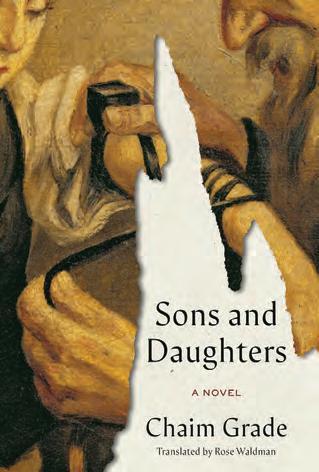

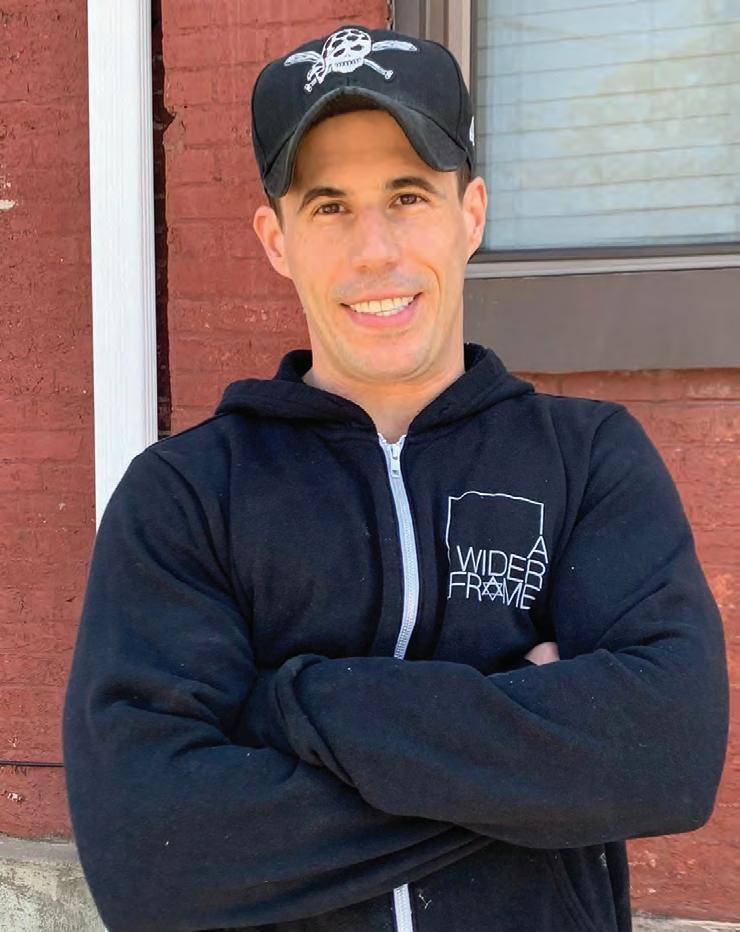
David Geoffrey Cohen, age 40, of Pittsburgh, passed away tragically on Saturday, Sept. 27, 2025. David was the beloved son of Howard Ira and Luisa Faye Bucaresky Cohen, and the dear brother of Eden Rachel Cohen and Andrew Brown. David’s family was the heart of his world. He was a devoted and loving son and brother, and a grandson, nephew, cousin, friend and neighbor whose presence brightened every gathering. He was cherished by his Aunt Larraine and Uncle Ron Bates; by his Aunt Debra and Uncle Robert Cohen and their children, Jamie, Michael and Stephen; and by family members John and Ian Rogers, as well as the Bogart and Fisher families. David was preceded in death by his beloved grandparents, Emanuel and Mollie Bucaresky, and Morton and Sonia Cohen, and also by family members, Kathryn Anschuetz and Joanne and Fred Rogers. To know David was to know kindness in its purest form. He had the gentlest, most generous heart, always eager to help, always ready to show others how deeply loved and appreciated they were. He gave of himself endlessly, often placing others’ needs before his own. What he didn’t always realize was how profoundly he touched the lives around him, how much joy he brought into so many hearts, and how fully he was loved in return. David loved all animals, and his compassion extended to every living being. He had a way of making everyone feel safe, valued and cared for. If the world had more people like David, it would be a far better place. David was not only kind; he was also fun, funny and full of life. He wanted everyone around him to have a good time, and he had a gift for making ordinary moments feel joyful and memorable. Though he sometimes gave his parents a run for their money, Howard and Luisa wouldn’t have it any other way. Their love for David is boundless, and his love for them was just as strong. David reminded his family often how much they meant to him, never letting a day go by without making sure they knew they were cherished. One of David’s greatest joys in recent months was the anticipation of becoming an uncle. His sister Eden is expecting her first child at the end of December, and David could hardly contain his excitement about stepping into that role. He spoke often of how he couldn’t wait to be the best uncle, and those who knew him had no doubt he would have been just that. Eden hopes she gave back to him even a portion of the love and support he gave so freely to her. David’s absence leaves a profound void in the hearts of his family and friends. He will be remembered always for his beautiful heart, his generous spirit and his ability to make others smile. One meaningful way to honor David’s memory is to carry on his spirit of care by reaching out to his parents, sister, brother and loved ones, reminding them that they are not alone and surrounding them with the same love and support David so freely gave to others. The funeral service was held at William Slater II Funeral Service. Interment at Mt. Lebanon Cemetery, Temple Emanuel section. Memorial donations may be sent to either Humane Animal Rescue of Pittsburgh at humaneanimalrescue.org/donate or Animal Friends at thinkingoutsidethecage.org/donate in David’s name. “I not only believe in Miracles — I depend on them.” slaterfuneral.com
FELDSTEIN: Marsha Rochelle Feldstein, 79, of Sarasota, Florida, passed on Sept. 22. Born in Pittsburgh to Philip and Annette Reicher on Jan. 27, 1946. Survived by husband Jack, sons Jeffrey (Sonia) and Philip (Rachel), and grandchildren: Samantha, Cezar, Jonathan, Joshua, Libby and Ryder. Service was held at Toale and Sons at Palms Memorial Park, Sarasota, Florida. Rabbi Mimi Weisel officiated.
Please see Obituaries, page 20
LETTERS OF ADMINISTRATION OR TESTAMENTARY
Letters of Administration on the Estate of Sonia-Marie Morley, deceased, of 7430 Frankstown Ave., Pittsburgh, Allegheny County, PA, 15208, No. 02-25-05075, have been granted to Nathaniel Morley, 1026 Liverpool St., Apt 2, Pittsburgh, PA 15233, who requests that all persons having claims against the Estate of this Decedent make known the same in writing to him or his attorney, Thomas E. Pandaleon, Esq., 6824 Thomas Boulevard, Pittsburgh, PA 15208, and all persons indebted to this Decedent make payment to the same.

D’Alessandro Funeral Home and Crematory Ltd.
“Always A Higher Standard”

Dustin A. D’Alessandro, Supervisor • Daniel T. D’Alessandro, Funeral Director 4522 Butler St. • Pittsburgh, PA 15201 (412) 682-6500 • www.dalessandroltd.com



Greentree,











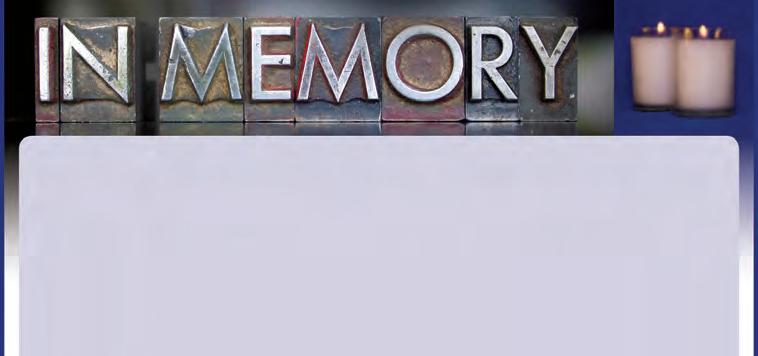
Danny Anolik .Paul Anolik
Jan & Edward Korenman .Jacob Samuel Kuperstock
Simma & Lawrence Robbins . . . Isadore Nadler
Dr Carol Shapiro Morgan .Charlotte H Shapiro
Edris C Weis .Peter Shaffer
Ruth Yahr I . Leroy (Lee) Yahr
Ruth Yahr .Sigmund Yahr
Contact the Development department at 412-586-2690 or development@jaapgh.org for more information. THIS WEEK’S YAHRZEITS —
Sunday October 12: Harry Americus, Jacob Feigus, Ruth Klein Fischman, Harry Girson, Samuel W Gould, Albert Halle, Samuel W Jubelirer, Jacob Samuel Kuperstock, Jack H Mar, Samuel Moskowitz, Nathan Osgood, Anna Paris, Eli J Rose, Anna Rosenfeld, William Rosenstein, Bertram W Roth, Cantor Harry P Silversmith, Mary Cotler Weiner, Louis H Zucker
Monday October 13: Simon J Anathan, Paul Anolik, Ismor Davidson, Goldine Lapidus, Rebecca Lederman, Belle B Maharam, Esther Mankin, Isadore Nadler, Esther Pomerantz Silverman, Anne S Slesinger, Evelyn Ziff
Tuesday October 14: Jeanette Berkman, Meyer Bernstein, Ben Cohen, Blanche S Cohen, Leona Yorkin Dym, Warren G Friedlander, Clara Goldstein, Meyer Haltman, Toba Markovitz, Mildred S Miller, Edith Murstein, Fannie Scheinholtz, Yetta E Segal, Moses Weinerman
Wednesday October 15: Lucy Balter, Sara Jean Binakonsky, Harry Bricker, Beatrice Charapp, Tillie Cohen, Samuel Jacob Eliashof, Dr Howard H Freedman, Hyman Goldstein, Paul Harris, Hyman L Leff, Samuel Minsky, Hazel Oswold, Rose M Rabinovitz, Florence Ruben, Abraham Schrager, Rivka Silverman, Leopold Weiss
Thursday October 16: Samuel Evelovitz, Dora Friedman, Frances Fromme, Morris Gordon, Ethel Hornstein Josephs, Phyllis K Kart, Abram Hirsh Levine, Anna Mandel, Lena Moskowitz, Dora Rosenzweig, Abraham J Rothstein, Bessie Rubinoff, Charlotte H Shapiro, Joseph Shire, Florence M Supowitz, Saul David Taylor, Rebecca Weinberg
Friday October 17: Isadore E Binstock, Jack Citron, Mary Levinson Cohen, Sarah Silverblatt Epstein, Edward L Klein, Esther Rogow Landau, Louise Comins Waxler, Dr Alfred L Weiss, Samuel J . Wise
Saturday October 18: E Louis Braunstein, Harry Cooperman, Dorothy Harris, Barney Holtzman, Sidney H Lefkowitz, Lazor Lewis, Ida Linder, David S Palkovitz, Rachel Povartzik, Celia Rakusin, Milton L Rosenbaum, Florence Shrager, Rita Jo Skirble, Harry S Smizik, Seymour Spiegel, William Stern





“One child, one teacher, one pen, and one book can
the world”.








Obituaries:
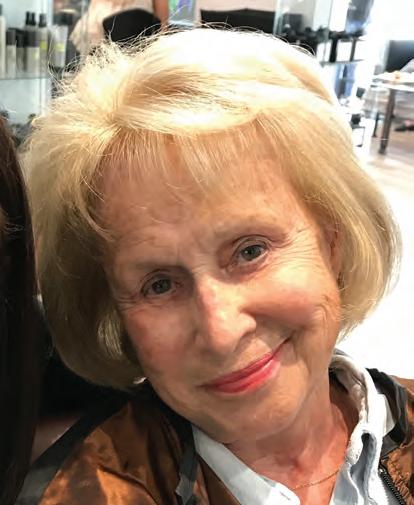
Continued from page 19
SMITH: Norma Ruth Smith passed peacefully on Oct. 4, 2025. Norma Smith, a beloved daughter, wife, mother, grandmother, artist and businesswoman, grew up in Pittsburgh, the cherished daughter of Phillip and Esther Sattentstein. From an early age, Norma exhibited a rare blend of creativity and business savvy. She channeled her artistic talents and flair for fashion into two successful boutiques in downtown Pittsburgh: The Oliver Shoppe and The Mamz’elle Shop, both of which became beloved local fixtures. Together with her devoted husband, David, Norma co-founded D&N Smith Co., a respected management and promotional consulting firm. Their shared vision and dedication left a lasting legacy of professionalism, innovation and enduring success. Norma also had a lifelong commitment to charitable causes, and was actively involved with organizations such as ORT, Hadassah, and the ALS Society — a cause particularly close to her heart. Above all, Norma was a devoted wife, mother and grandmother. She was the beloved wife of the late David Edward Smith. Norma is survived by her daughters, Marcee Rae Smith and Brenda Sue Smith, and her treasured granddaughters, Phebe Marion Barnett and Rebecca Hollis Smith. She was preceded in death by her beloved son, Stewart Alan Smith, whose memory she held dearly. In her later years, Norma made her home in Boca Raton, Florida, where she continued to live with grace, warmth and a radiant zest for life. She will be remembered for her strength, elegance, generosity, humor and her deep love for family and community. Her memory will forever be a blessing to all who knew and loved her. In lieu of flowers, contributions may be made in Norma’s memory to the Parkinson’s Foundation (parkinson.org/). Services and interment were held West View Cemetery of Rodef Shalom Congregation. schugar.com PJC

Monday, November 3, 2025 | 7:30 pm Pittsburgh, PA | Squirrel Hill
Address Provided Prior to Event
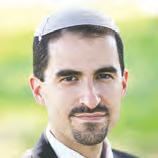
Elie Klein North American Director of Development, ADI Negev-Nahalat Eran

RSVP required at jnf.org/noonebehind No Cost to Attend
RSVP Required by Wednesday, October 29, 2025

Contact me today to discuss all of your real estate needs!
Sherri Mayer, Realtor Squirrel Hill Office
C: 412-760-0412
O: 412-421-9121x225 sherrimayer@howardhanna.com HowardHanna.com



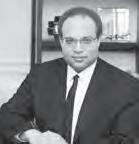





Smith-Rosenthal Team
Jason A. Smith & Caryn Rosenthal
Jason: 412-969-2930 | Caryn: 412-389-1695 Jasonasmith@howardhanna.com Carynrosenthal@howardhanna.com








































Then there is the actual Jewish history, the blood libel, accusations of witchcraft and antisemitic laws that kept Jews segregated in Prague’s ghetto. There is also Loew’s own life as a lauded Talmudic scholar — not a Kabbalist, as Brown describes him — and, of course, a rich tradition of Talmudic and midrashic exegesis. The setting is rife with the kind of symbols and mystery that Brown uses as fodder in all his other thrillers, inventing secret societies and mystical artifacts lost to history.
Instead, “The Secret of Secrets” has no Jewish characters and very little Jewish history. Though Brown sprinkles in a few of Prague’s Jewish landmarks — the Old-New Synagogue and the city’s historic Jewish cemetery — the book still manages, despite its Golem centerpiece, to spend most of its time in churches. When Langdon
first encounters the Golem and sees its forehead inscription, Brown notes that the symbologist “did not read Hebrew well,” though the professor, who specializes in religion, regularly relies on his fluency in Greek, Latin, Arabic, Cyrillic and even a fake angelic language invented by two crackpot mediums that was never spoken by more than a handful of people. At one point, the Golem is described as arriving “like some kind of ascendant Christ.”

The real focus of the book is an imaginary bit of science having to do with human consciousness and life after death, a topic Brown has been exploring in the Langdon books for some time now. His interest in religion seems to stem from the idea that they are all, fundamentally, the same, and that all religions are reaching for proof that life persists after death.
But Judaism doesn’t. There are concepts — which Brown overemphasizes — like gilgul
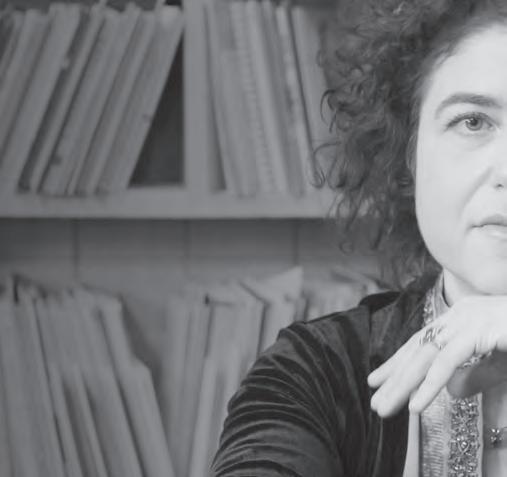
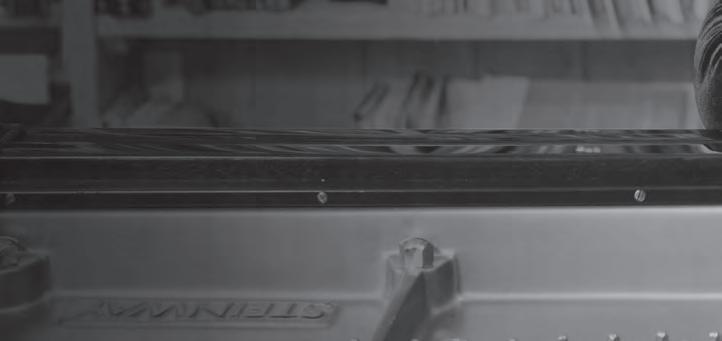
or gehenna that imply some post-death experience, but they’re not central to Jewish thought. Though one of the characters reads Loew’s most famous text, Brown clearly didn’t. (Like most works of Jewish commentary, it’s hardly the kind of work one buys in a bookstore and reads in a sitting.) It’s not as though Brown’s previous books got everything, or even most things, right about Christianity. His wacky inventions are part of the fun — no one is reading a thriller about a fictional professor of an imaginary discipline for accuracy. The Golem is a myth, a rich story that has remained resonant over the centuries due to its flexibility and ability to be reinterpreted; Brown can make whatever he wants of it. The problem is that he has made so little. PJC
This story was originally published on the Forward. To get the Forward’s free email newsletters delivered to your inbox, go to forward.com/newsletters.


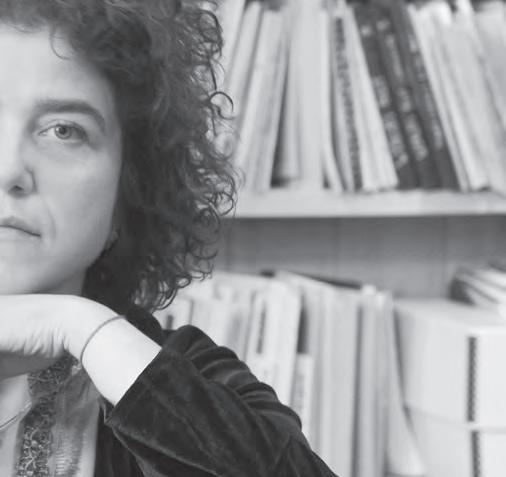




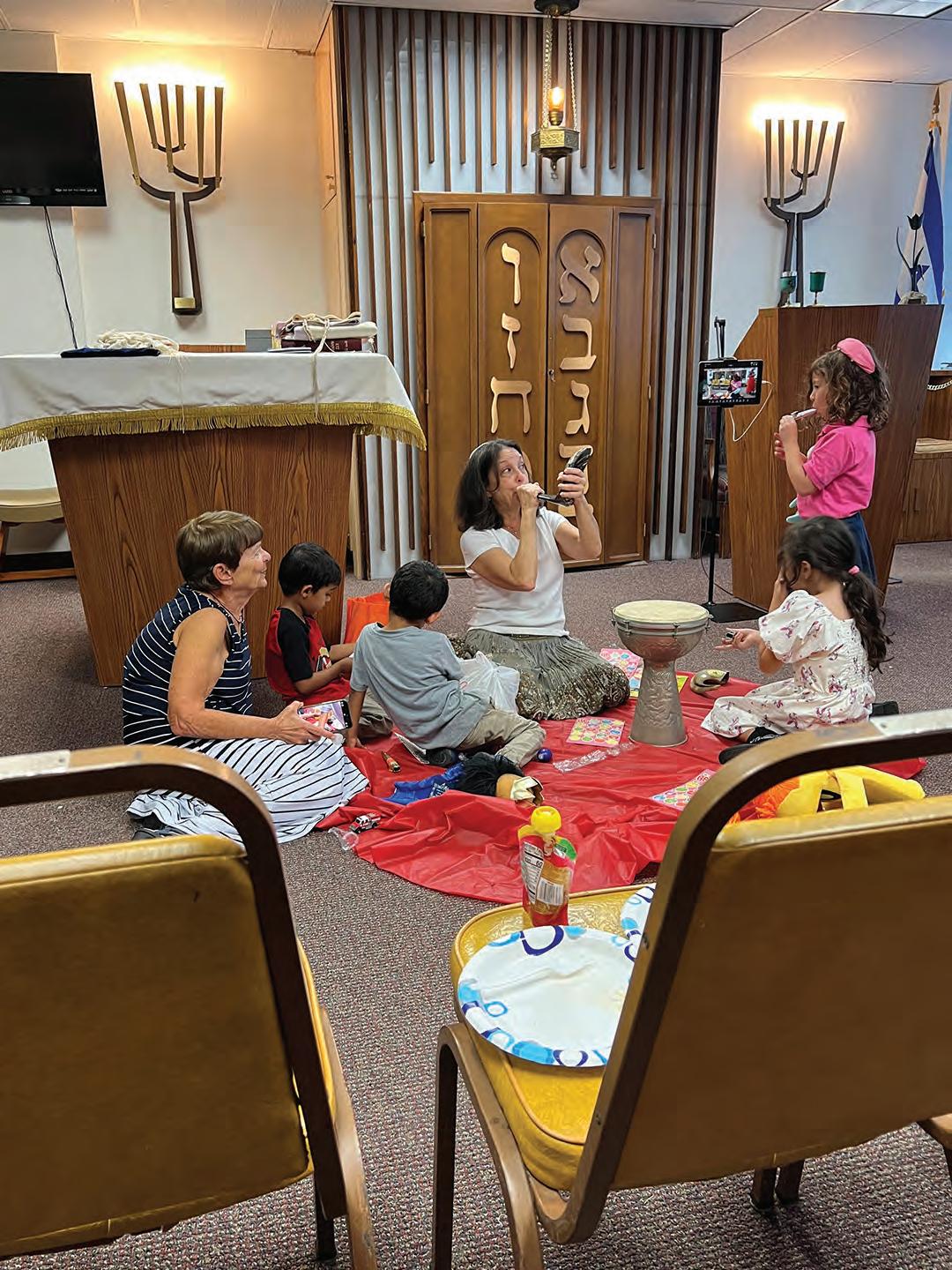

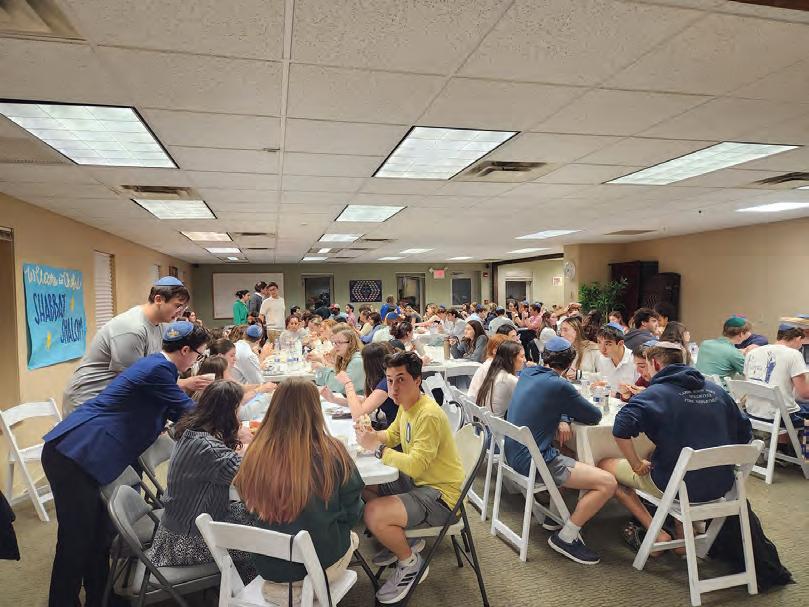

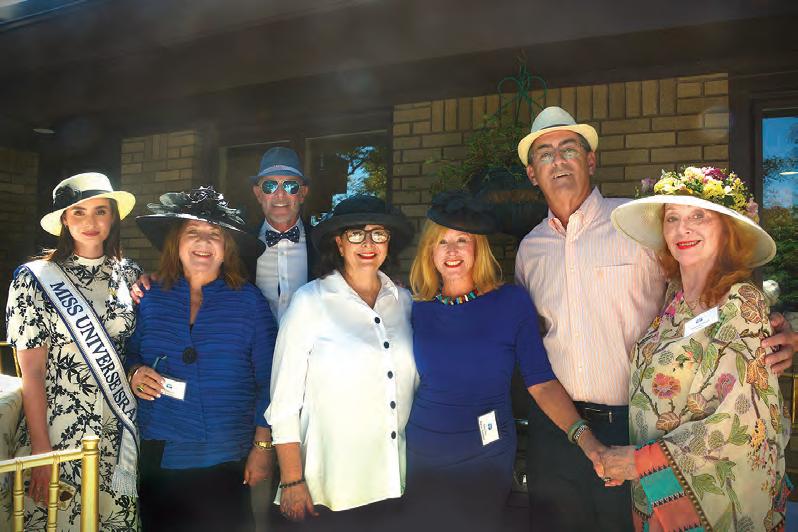






















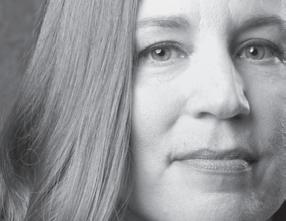

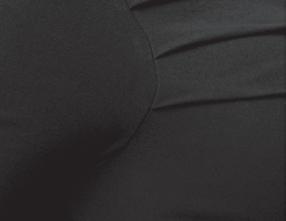
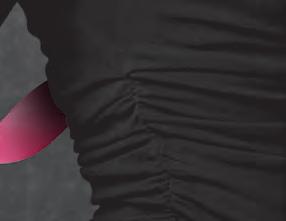








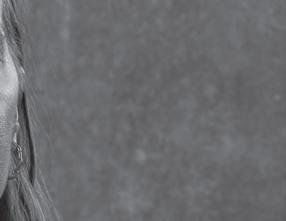

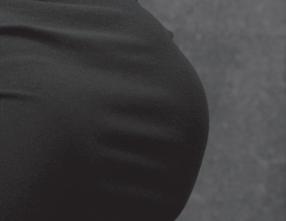

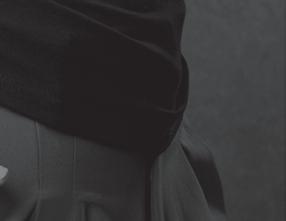
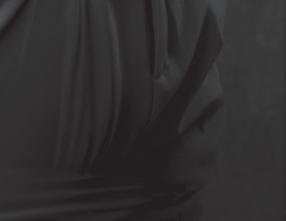


Diagnosed with Invasive Ductal Carcinoma Breast Cancer the Crystal’s story and learn more about screenings, our innovative therapies and













For those who have been diagnosed with breast cancer and those who have stood by loved one’s sides, we celebrate the strength in all of you. To see Crystal’s story and learn more about screenings, our innovative therapies and compassionate experts, visit upmc.com/BreastCancerAwareness





















